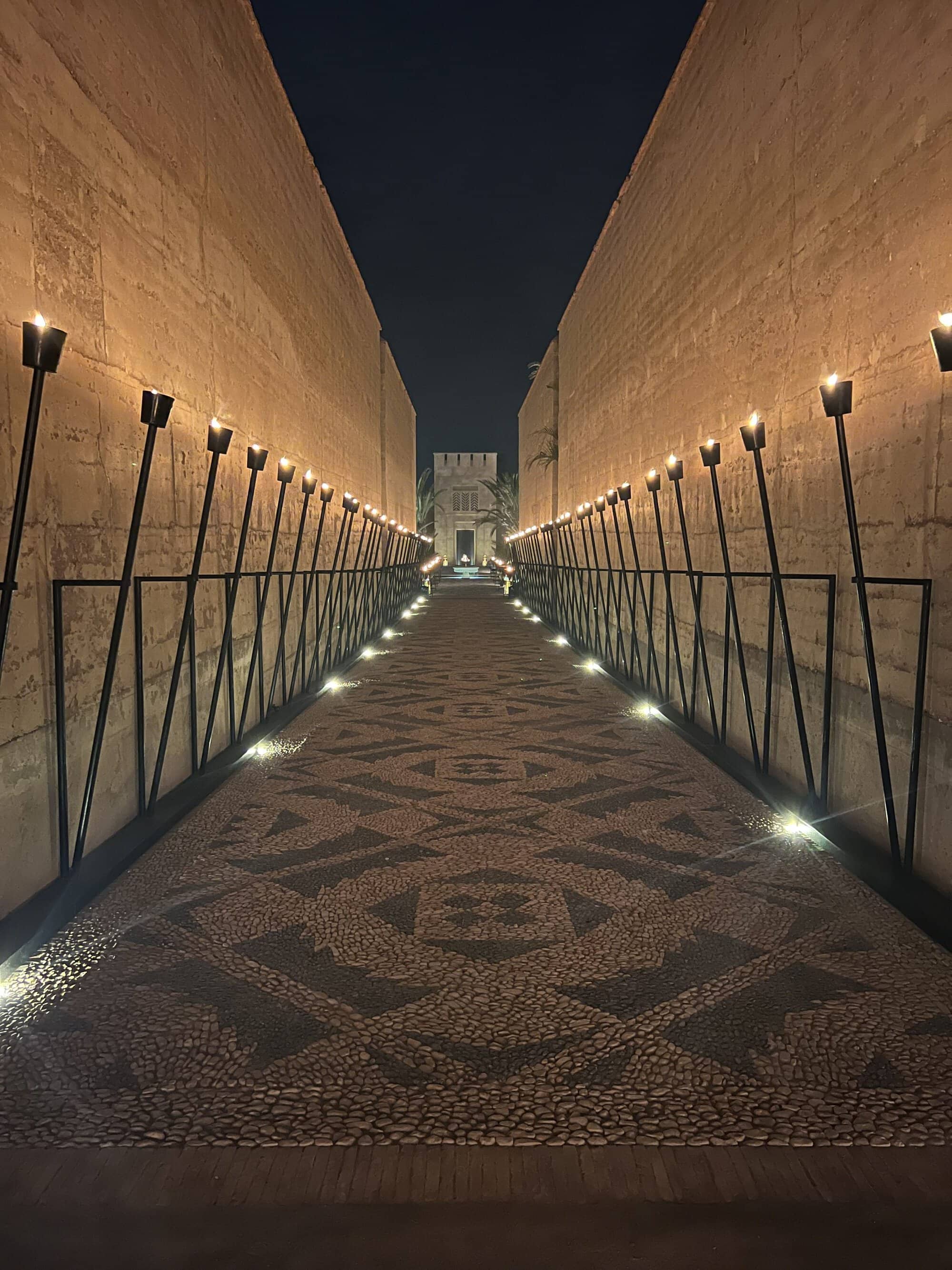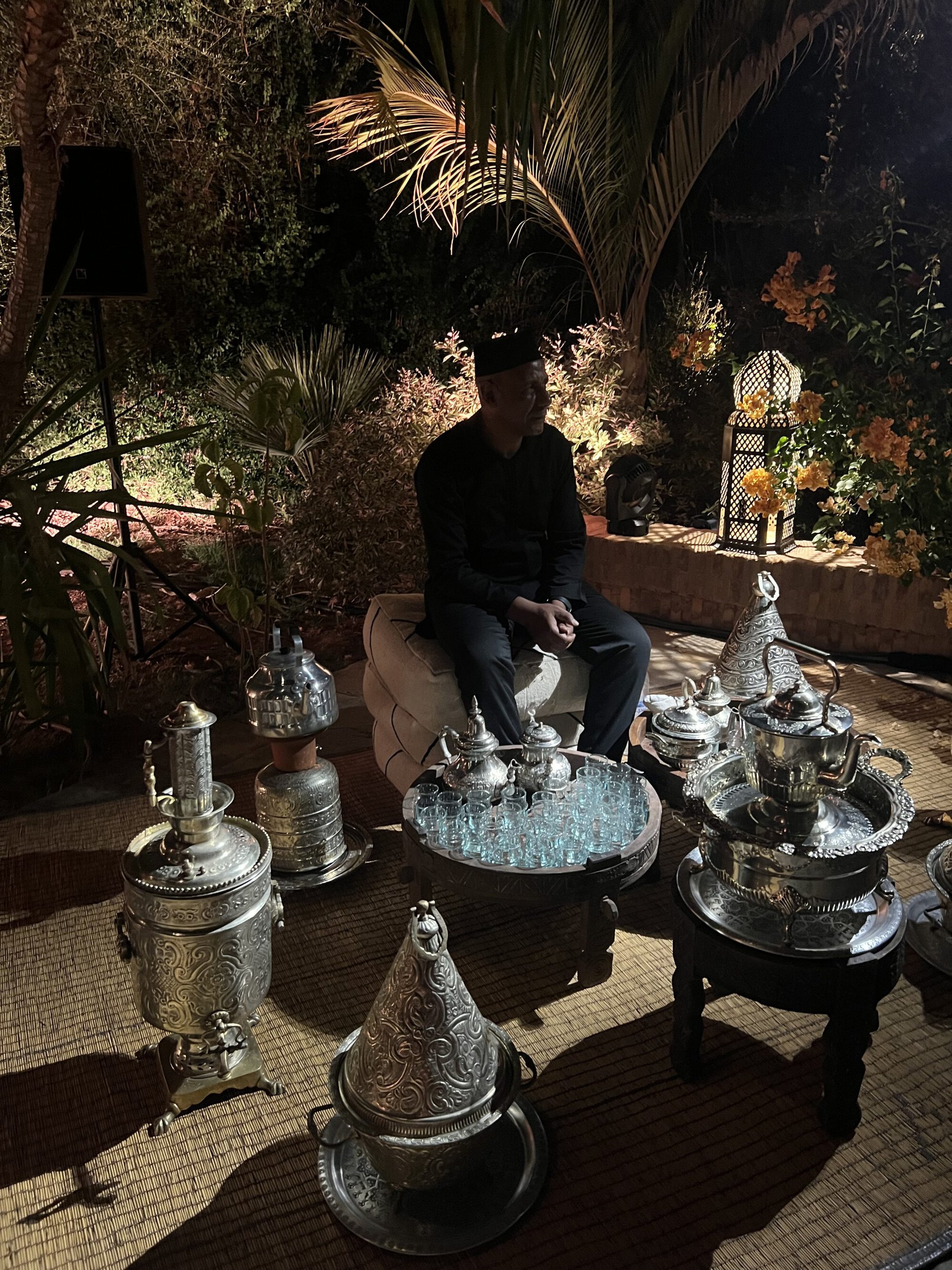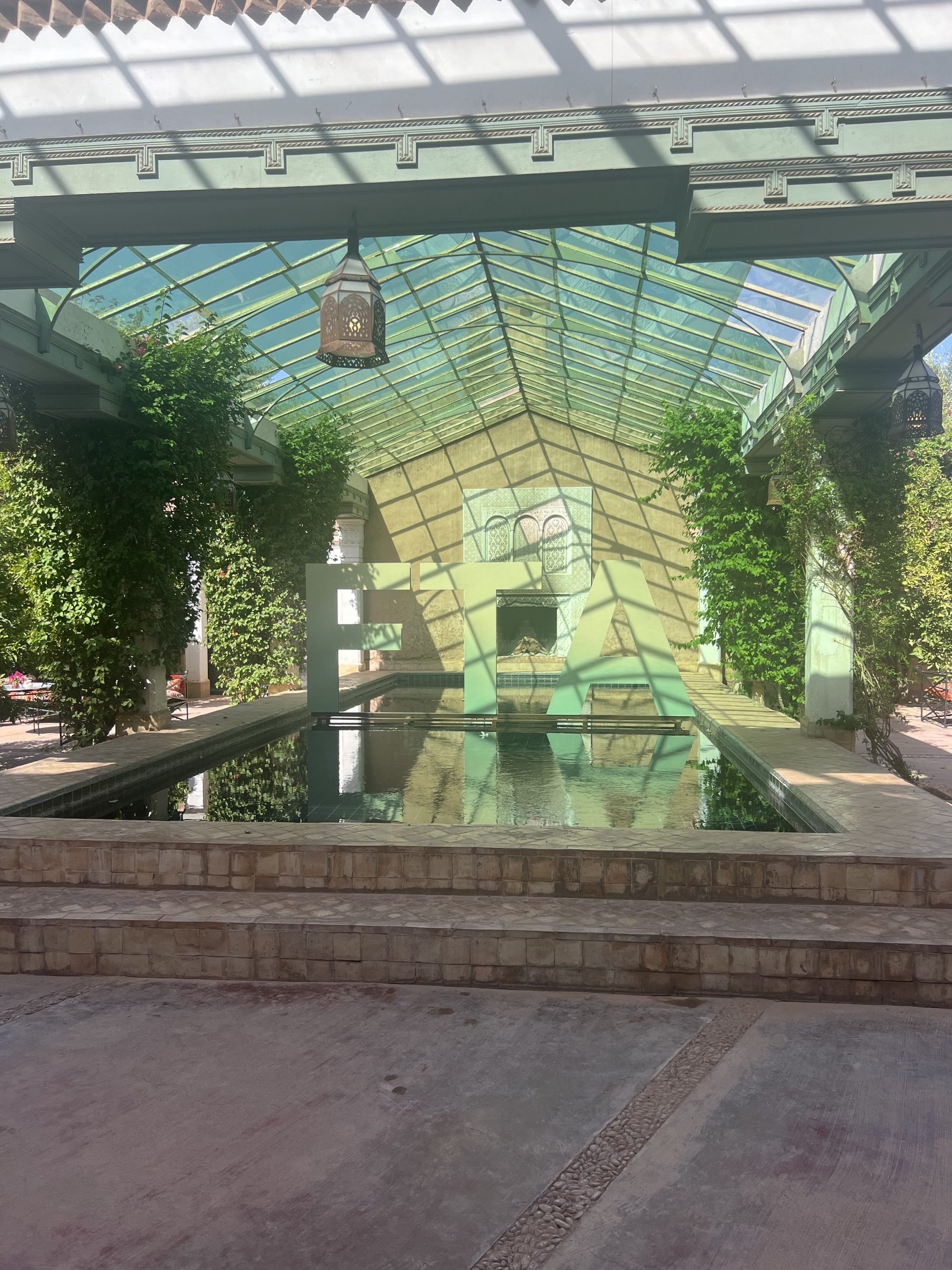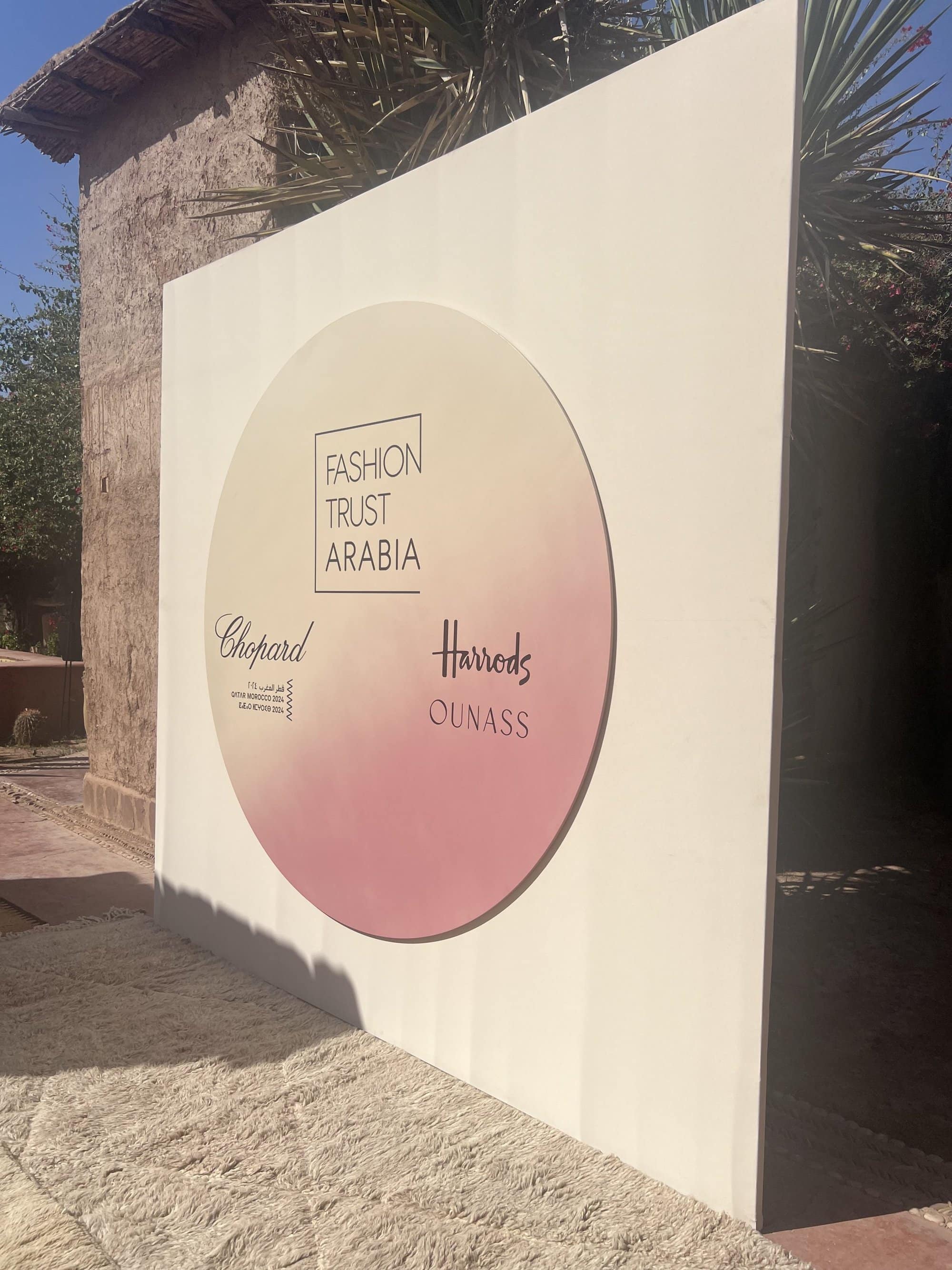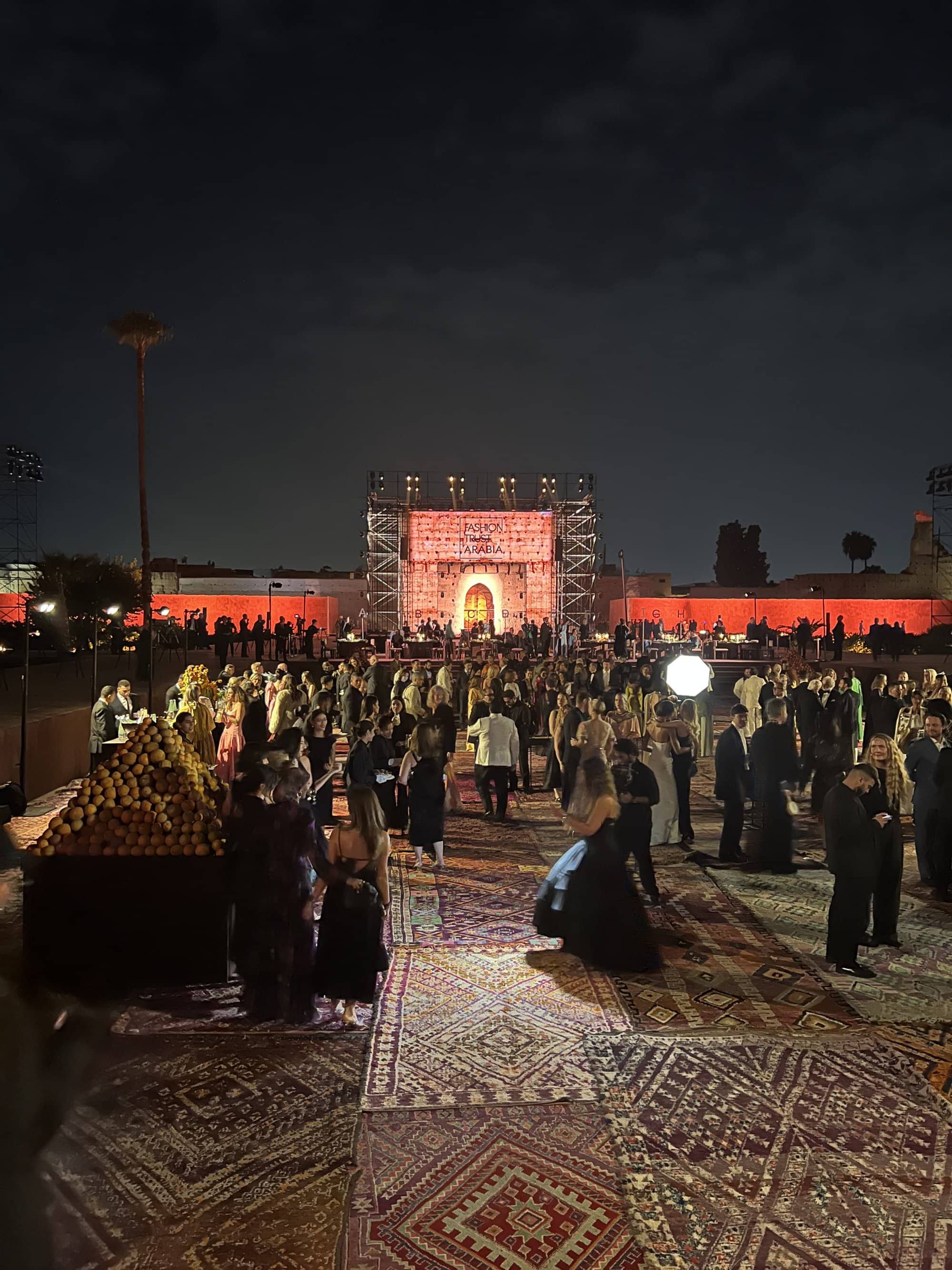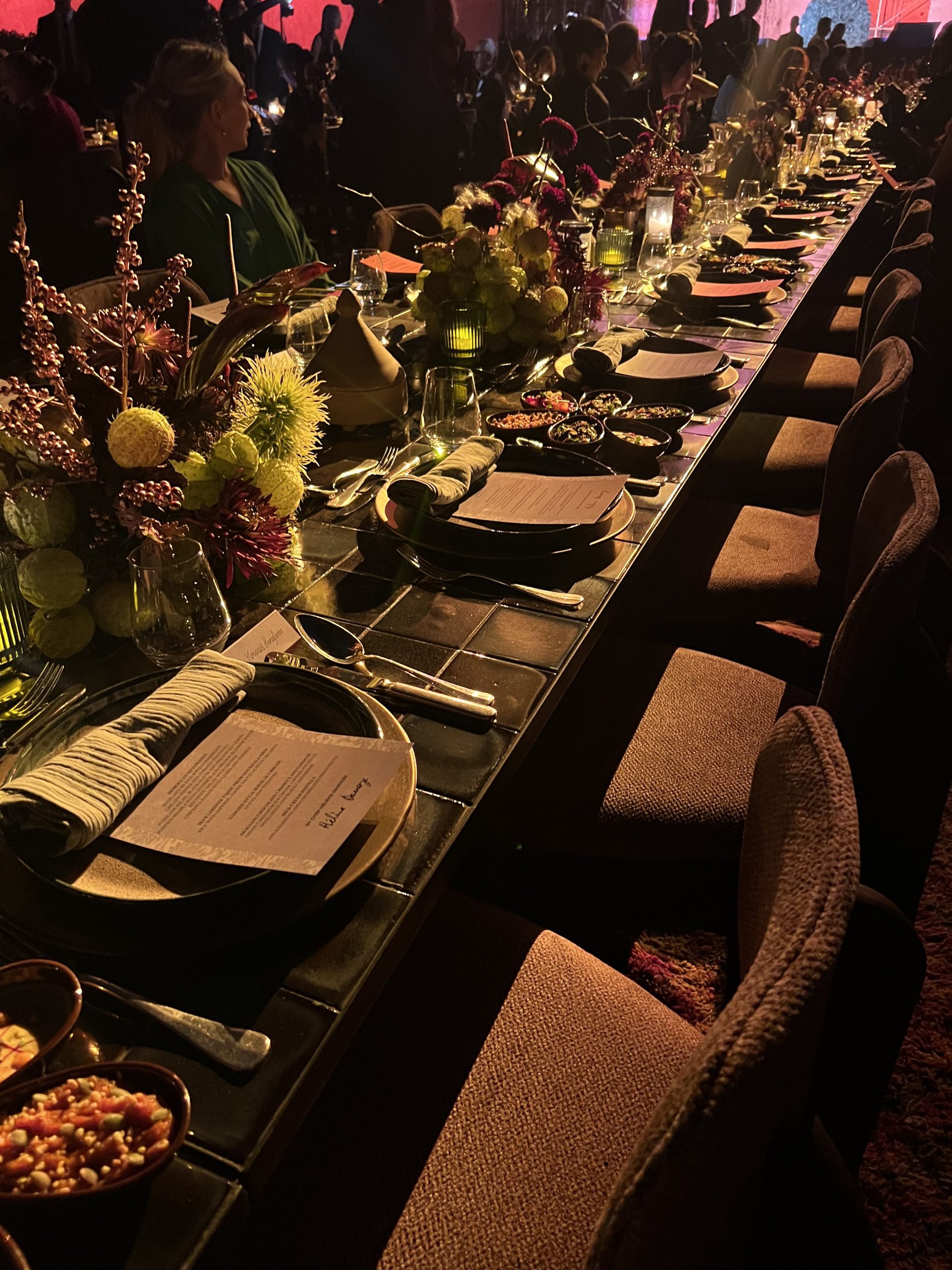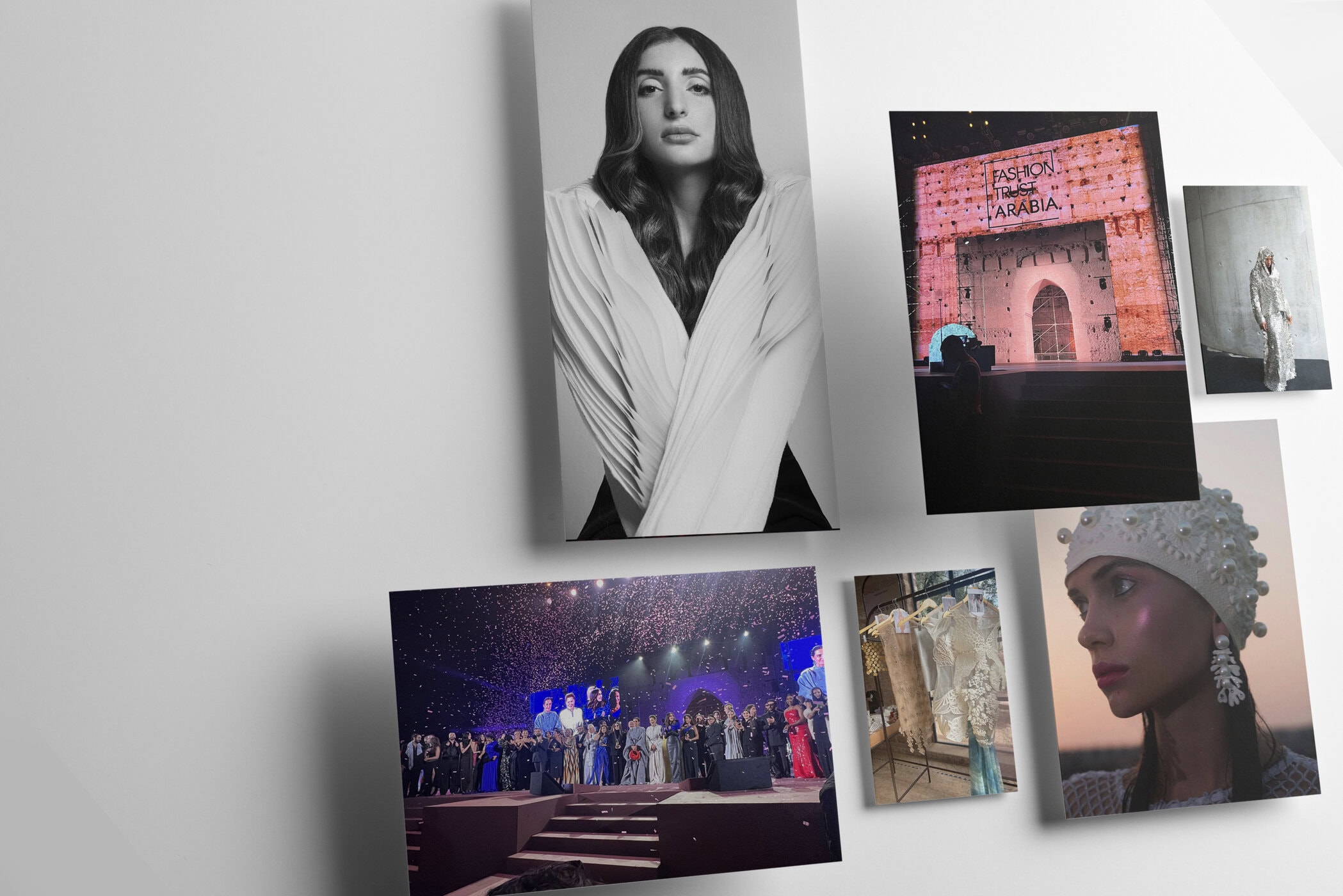Fashion Trust Arabia 2024 Takes Marrakech by Honouring Heritage, Preserving Culture, and Embracing Innovation
By Angela Baidoo
As conversations around where fashion goes from here continue there are industry insiders, as well as consumers who buy into fashion on a seasonal (if not daily) basis, that are seeking out new voices from beyond the west.
At a time when fashion appears fatigued with the homogeneity pervading todays collections – from mass market to high-end luxury – the simple act of pivoting can shift perspectives, as regions from the Middle East, Africa, South Asia, and South America are stepping onto the global fashion stage with dedicated fashion weeks and industry prize’s highlighting emerging talent who have tailored their brands to serve the local and regional customer. These creative are often tapping into a shared heritage with their designs serving a particular need for the customer seeking more than Quiet Luxury. A trend which may not resonate to the customer residing in the Global South, as their cultural signifiers may be displayed through vibrant colour combinations, intricate embellishment, and patterns which carry meaning.
Many of these designers who have built successful brands in their home countrys are yet to be internationally recognised, and with the next generation of creatives born of a global mindset, support and amplification have become more important than ever.
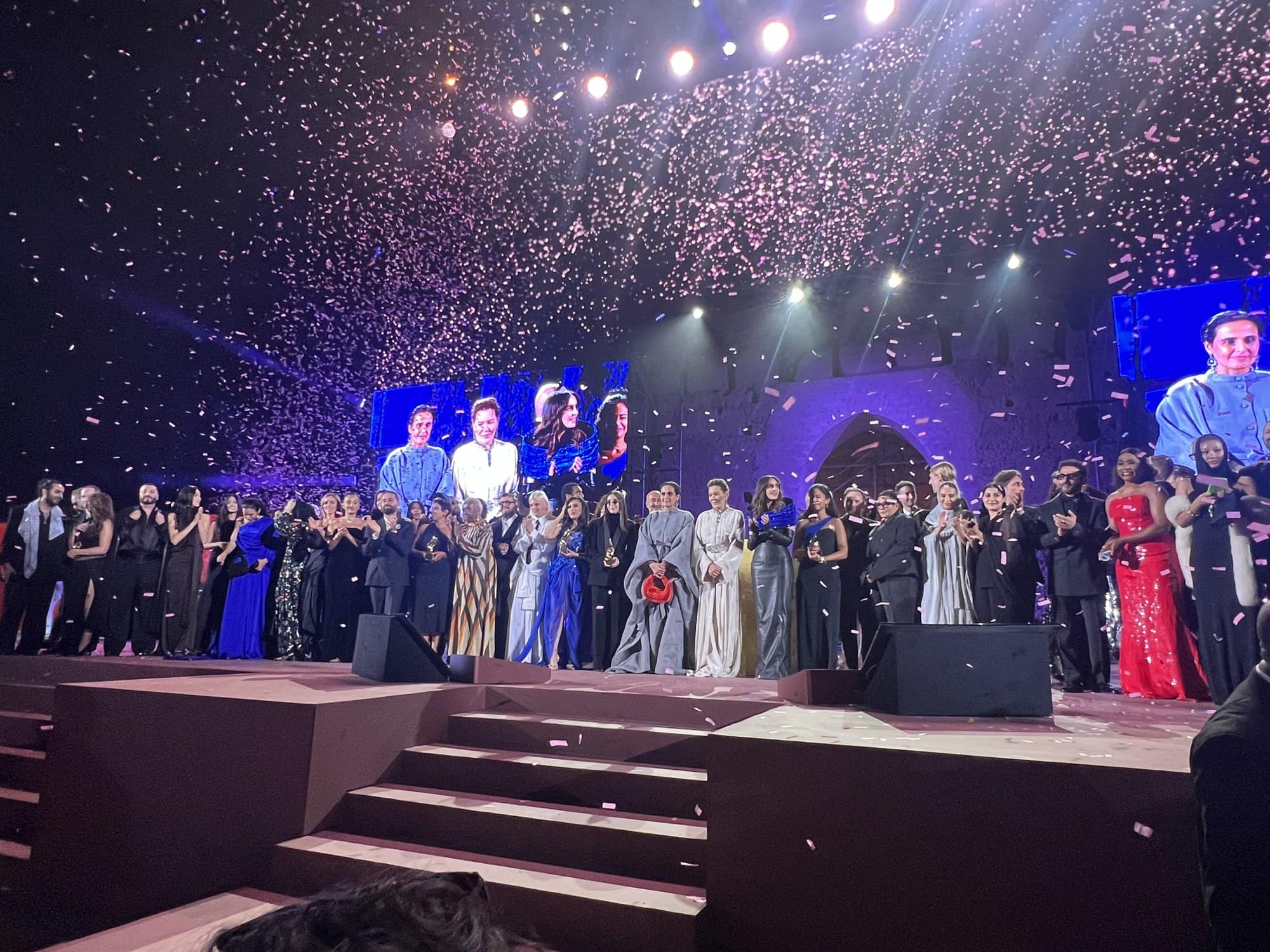
A Prize Apart
This is where the Fashion Trust Arabia (FTA) Prize comes into play. Standing alone as “The first prize in the Arab world to provide financial and business support to fashion designers in the MENA region”, the FTA is a platform for emerging designers to have their unique narratives and region-specific stories supported financially and creatively.
Fashion Trust Arabia, now in its sixth edition having launched in 2018, is a non-profit organisation founded by Her Highness Sheikha Moza bint Nasser, co-chaired by her daughter Her Excellency Sheikha Al Mayassa Bint Hamad bin Khalifa Al Thani, and Lebanese philanthropist Tania Fares, who sought out to amplify, support, and grow emerging talent from across the MENA (Middle East and North Africa) region.
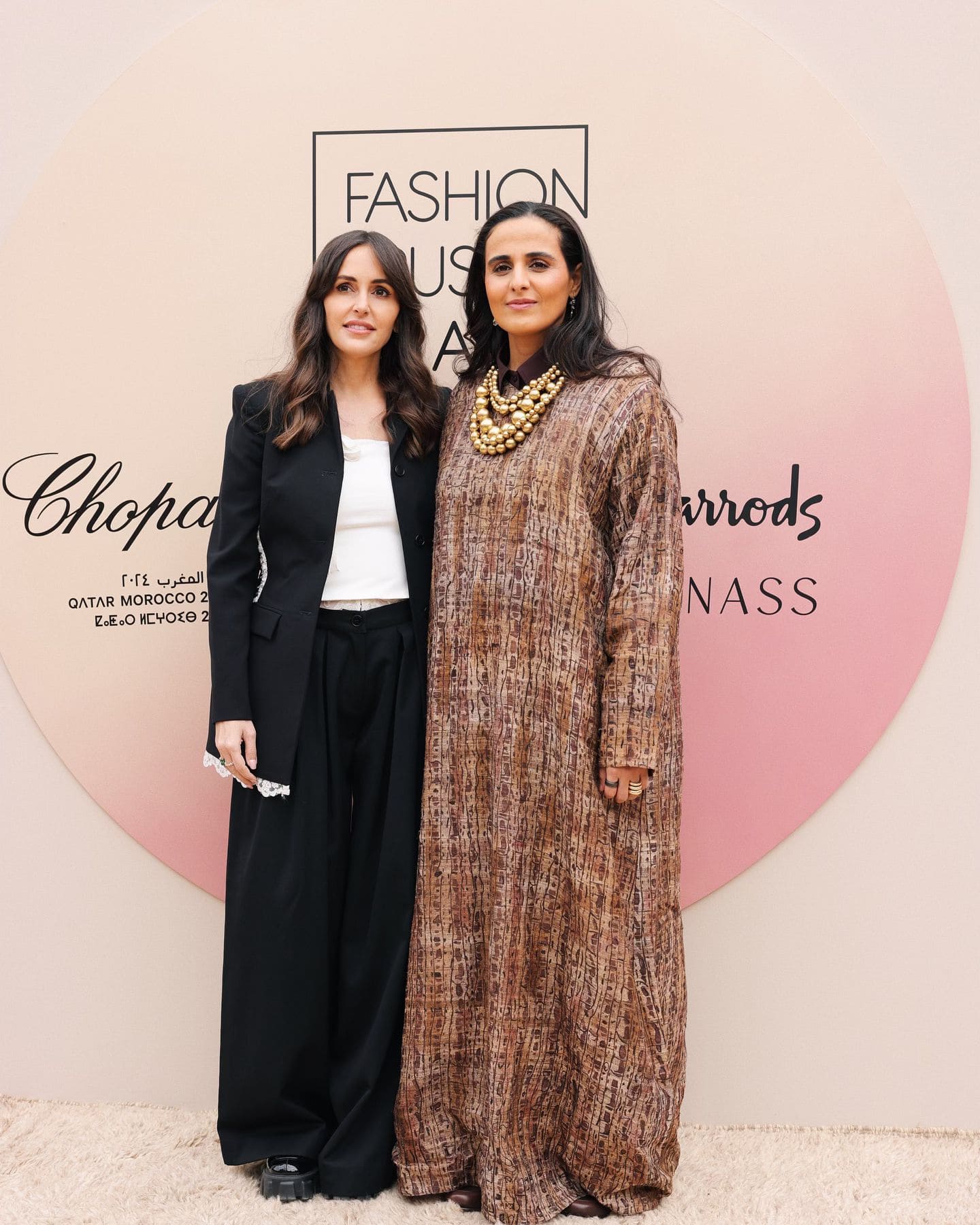
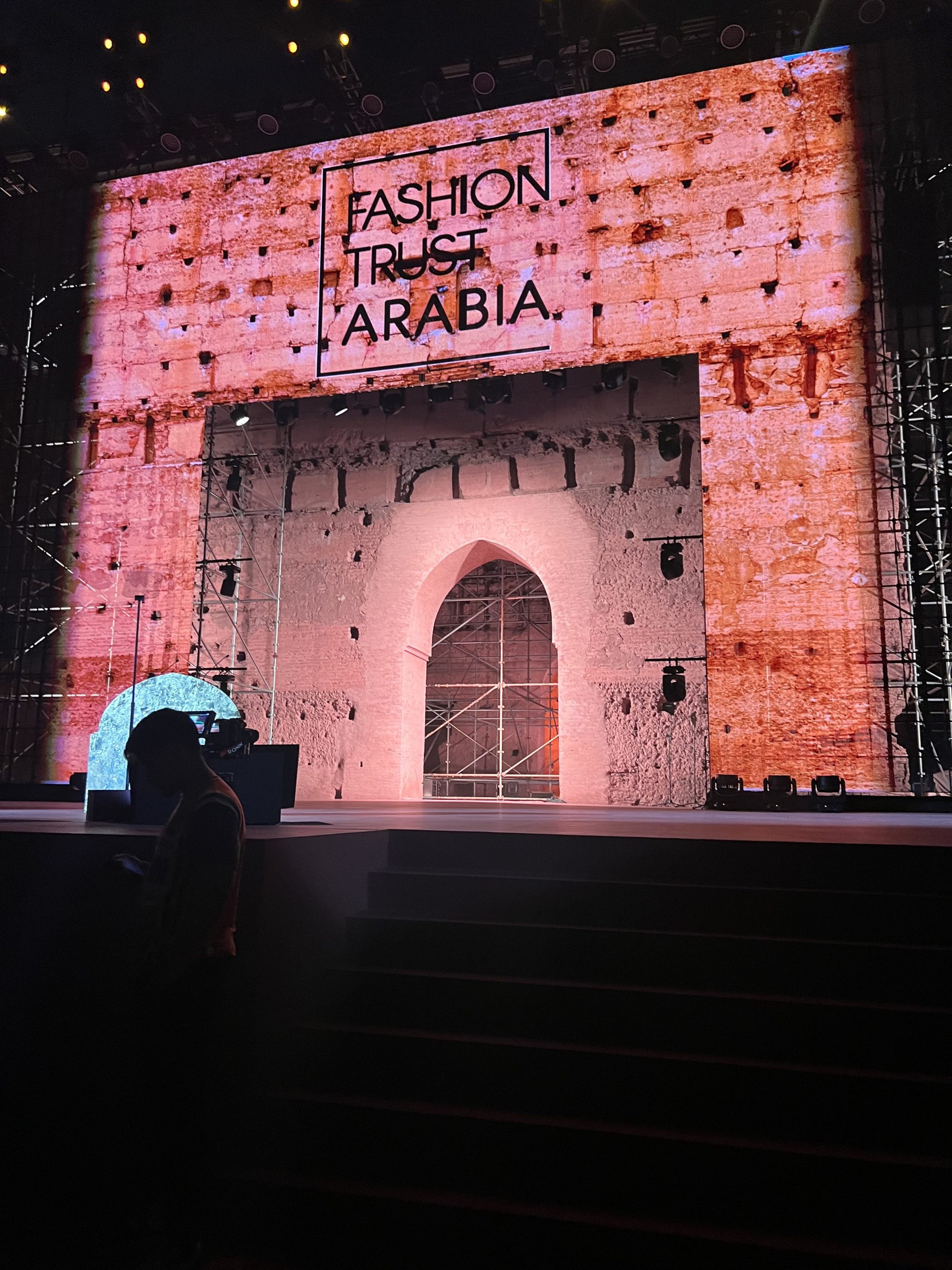
As part of the Qatar Museums Years of Culture, led by Chairperson Her Excellency Sheikha Al Mayassa bint Hamad bin Khalifa Al Thani, 2024’s Years of Culture initiative selected Morocco as its cultural partner, recognising their shared history of artistic, cultural, and creative expression. The Qatar-Morocco Year of Culture will bring together both communities through a series of major activations focussed on film, sports, science, technology, cuisine, theatre, and fashion, with events from the ‘Qatar Africa Business Forum’ to the ‘She Plays Football Tournament’ and the ‘Ajyal Film Festival’. Previous partner cities have included Japan (2013), Brazil (2014), Indonesia (2023), and India (2019).
The annual FTA prize allows designers with 2 to 10 years experience the chance to compete across seven key categories; ready-to-wear, evening-wear, accessories, debut talent, jewellery, and guest country (Spain), with 2024 marking the debut of the fashion tech award. Under-represented designers from eligible countries across the MENA region – including Algeria, Egypt, Jordan, and the United Arab Emirates – have the opportunity to secure global exposure and mentorship. Aligning with adjacent fashion industry prizes, winners are offered cash prizes in the form of financial grants from $25,000 for the Franca Sozzani Debut Talent category up to $200,000 for the fashion and accessories categories.
In lieu of the fractured retail and wholesale landscape the FTA’s focus on nurturing talent beyond financial rewards should be replicated as standard practice for fashion competitions. As the winner will have their collection carried by that years retail partner (for 2024 it’s Harrods), with a mentorship provided for the ready-to-wear winner offered by Huntsman Savile Row, culminating in the development of a collection to be sold via their e-commerce platform. Promoting learning in real-time, and strengthening each winners business acumen to ensure their future resiliency in a volatile market.
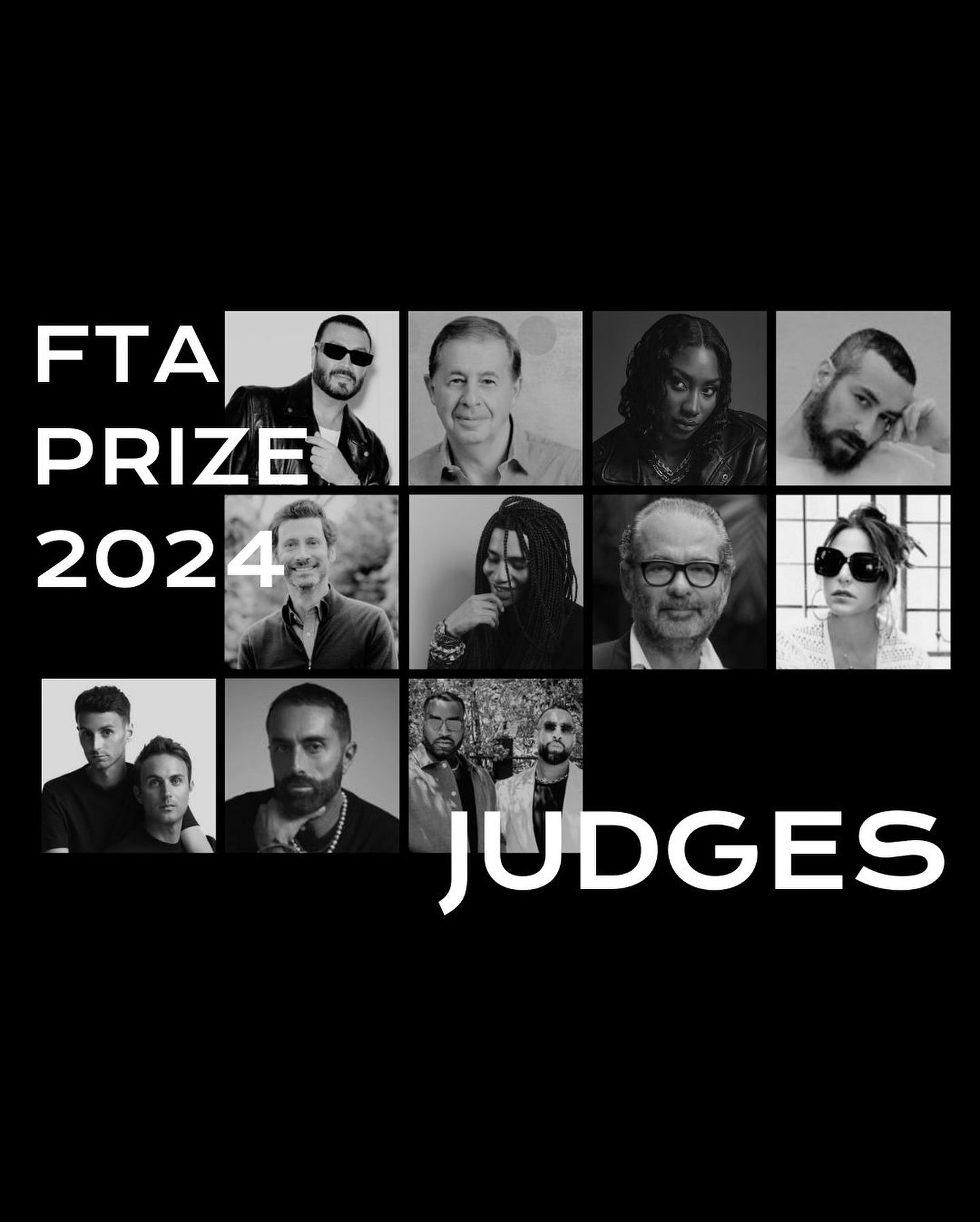
Marrakech played host to the prize and its winners who were selected by a jury of creative leaders in their field including Zuhair Murad, Olivier Rousteing (Balmain), Duran Lantink, IB Kamara (Off-White, Dazed), Remo Ruffini (CEO Moncler), Arnaud Vaillant and Sebastien Meyer (Coperni). As well as an advisory board which consisted of Carlyne Cerf de Dudzeele, Nina Garcia (Elle USA), Law Roach, Michael Ward (Managing Director, Harrods), Peter Dundas, and Erdem Moralioglu (Erdem).
The 2024 Winners: A Winning Formula of Traditional Craftsmanship, Ethical Design and Scientific Innovation
Taking place at the El Badi Palace in Marrakech, the awards ceremony invited guests from fashion to film to immerse themselves in a multi-faceted cultural experience of musical performances, Michelin-starred cuisine and digital art displays, further highlighting the Qatar-Morocco Year of Culture connection, and setting the stage for the 2024 Fashion Trust Prize award winners.
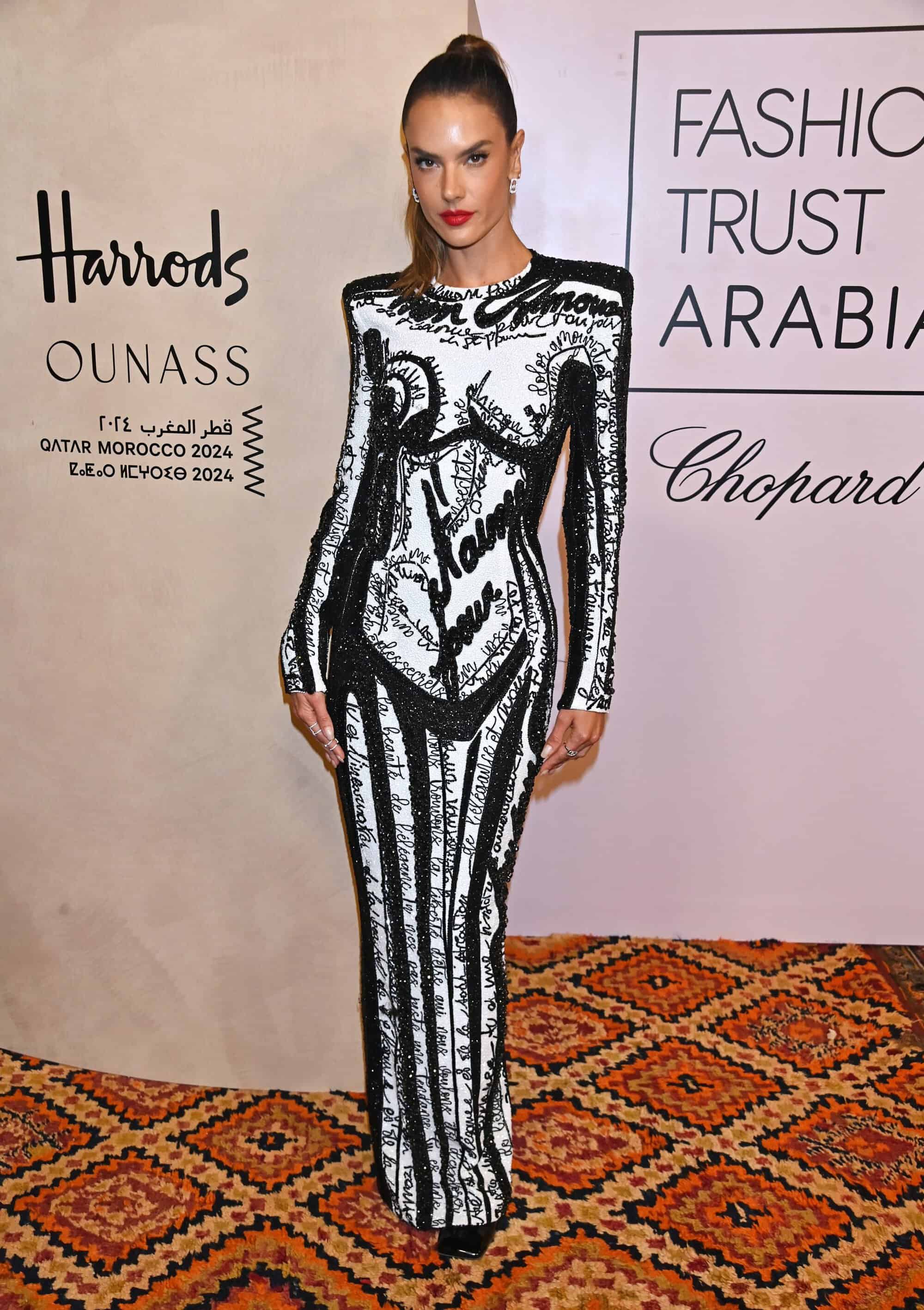
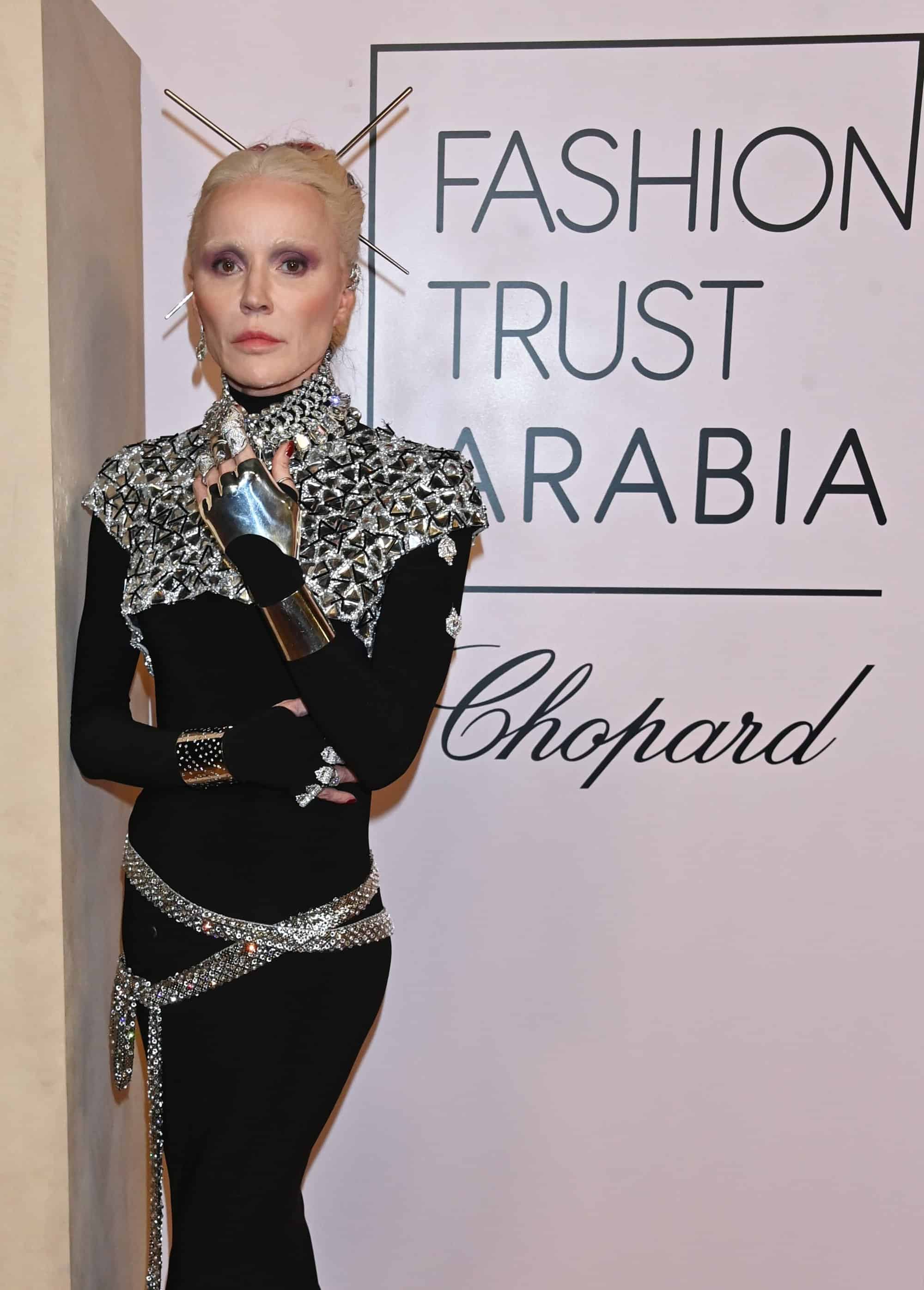
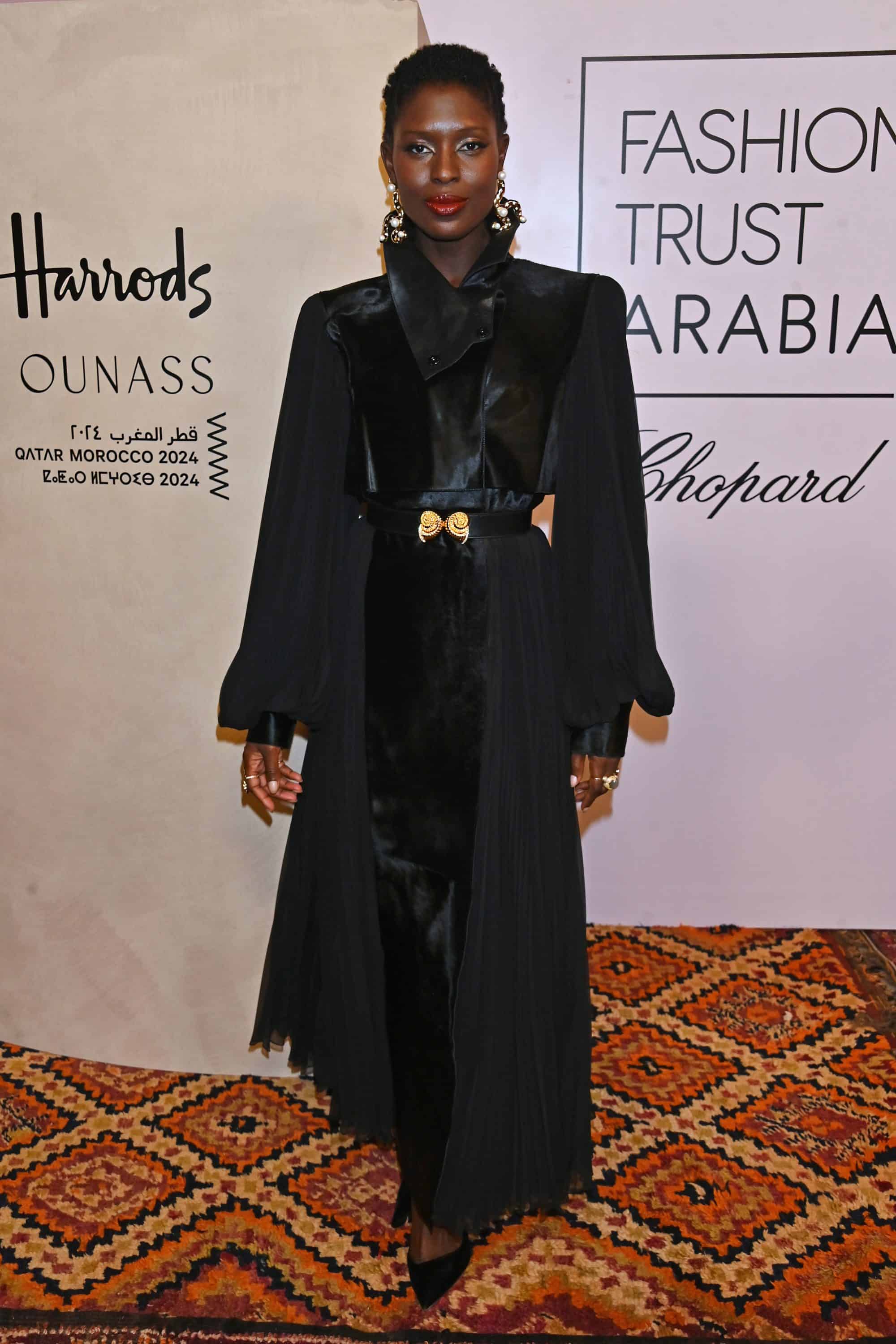
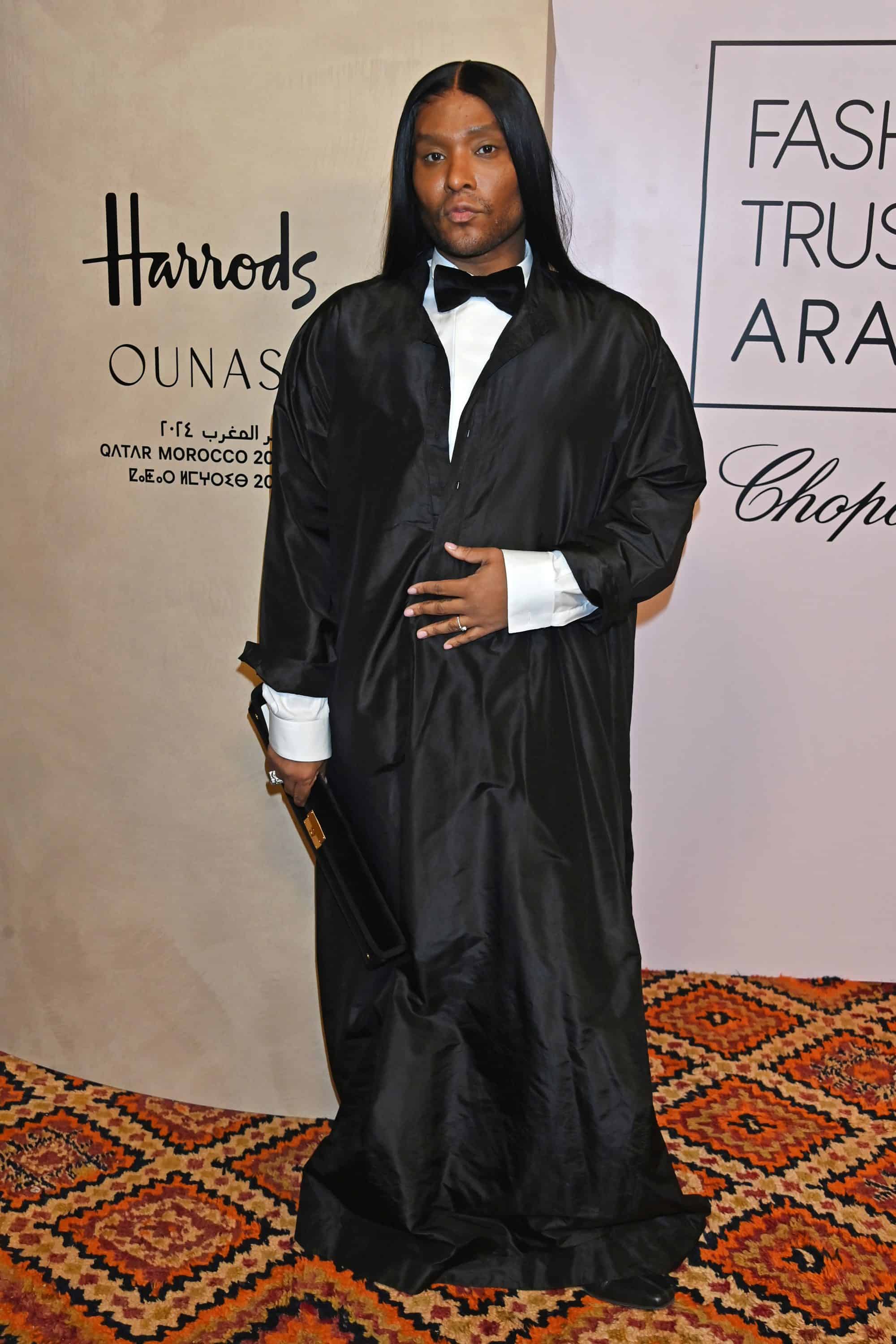
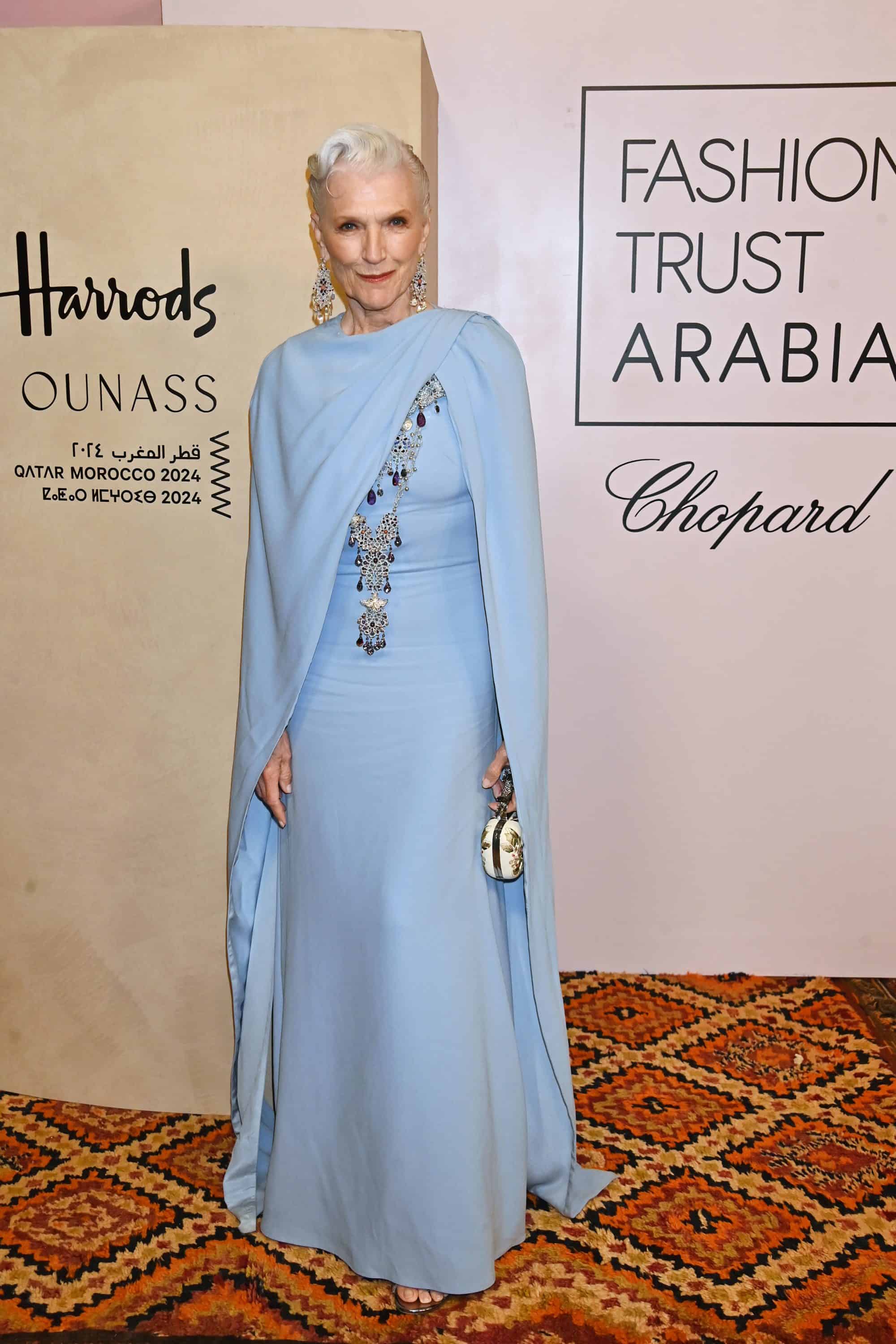
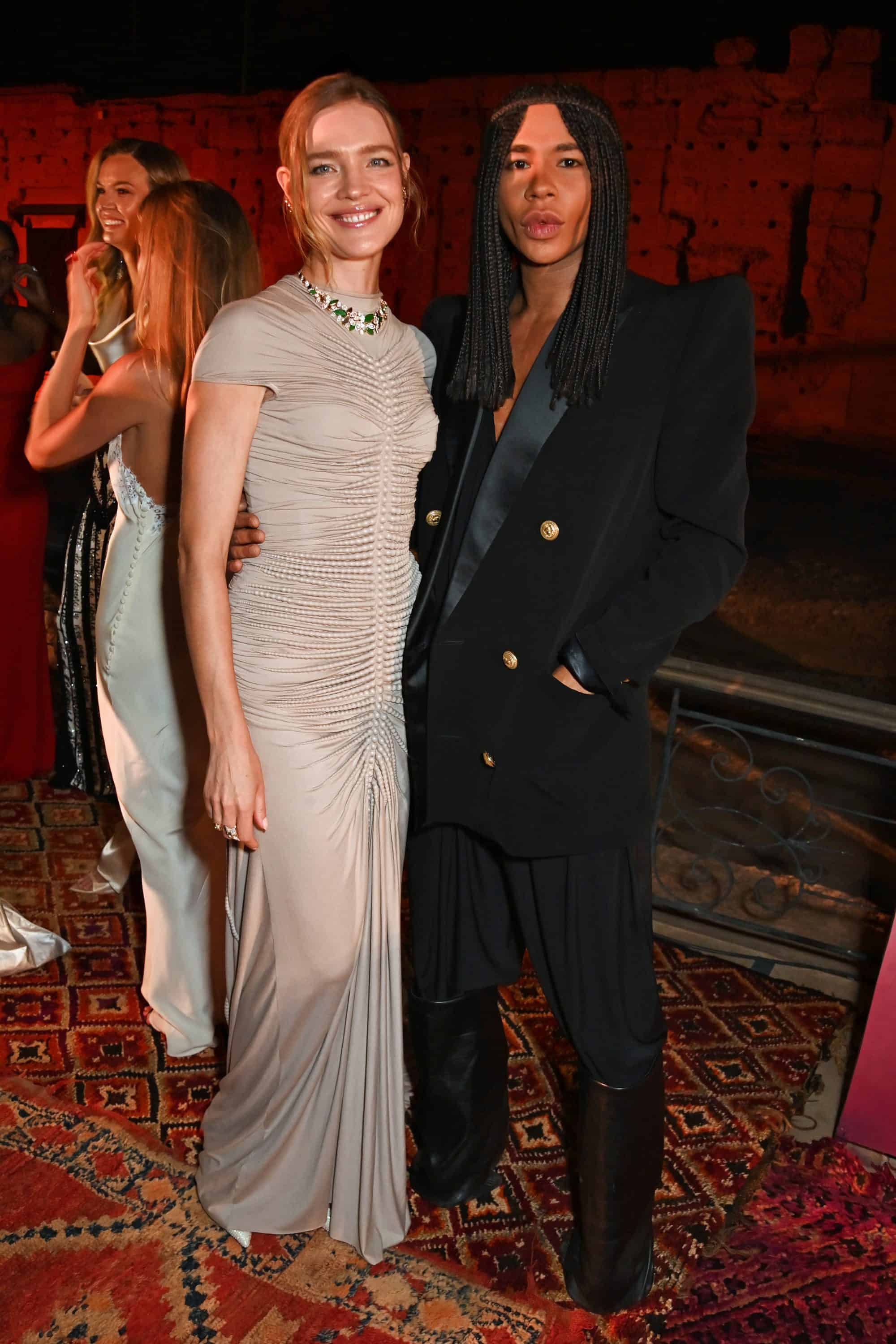
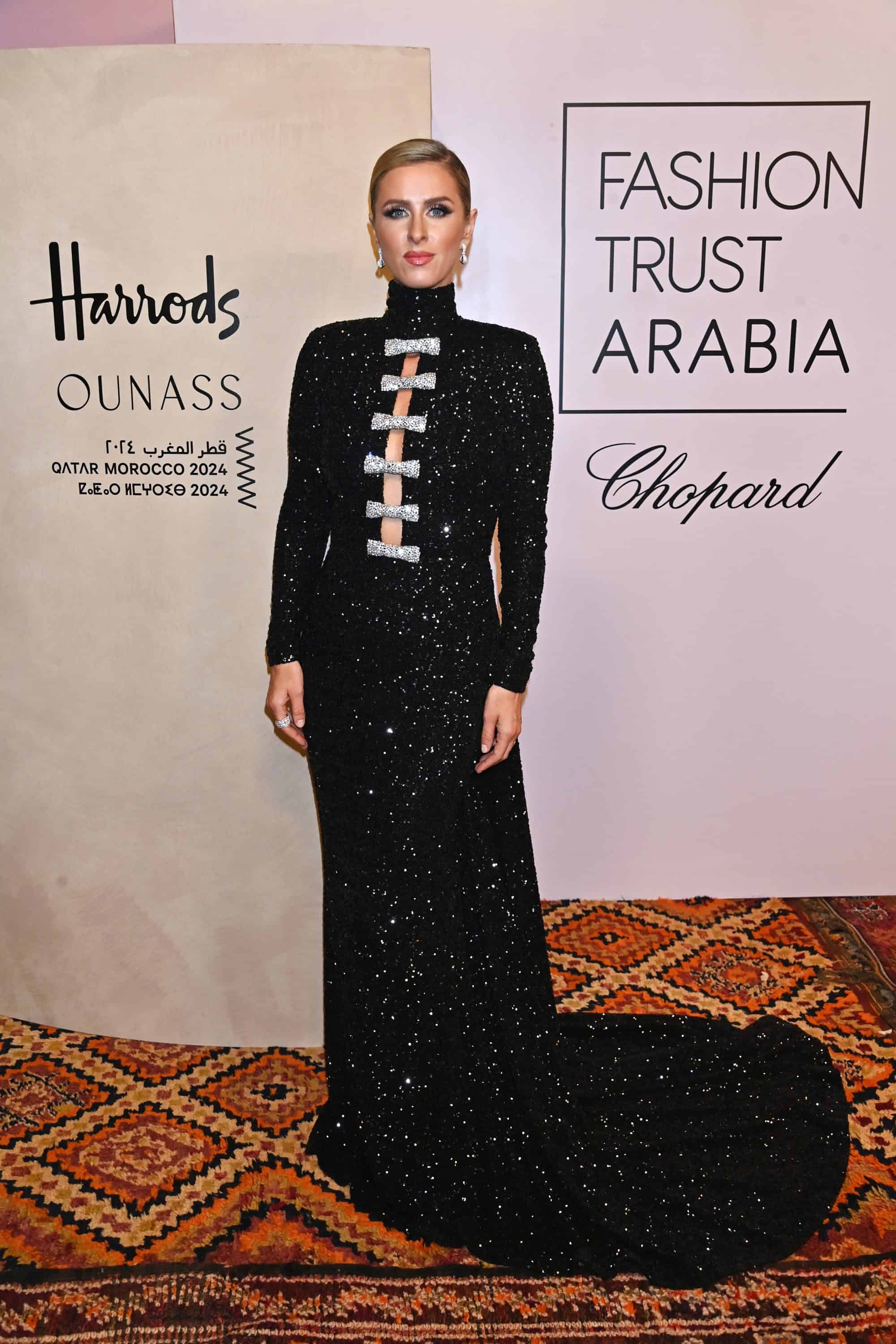
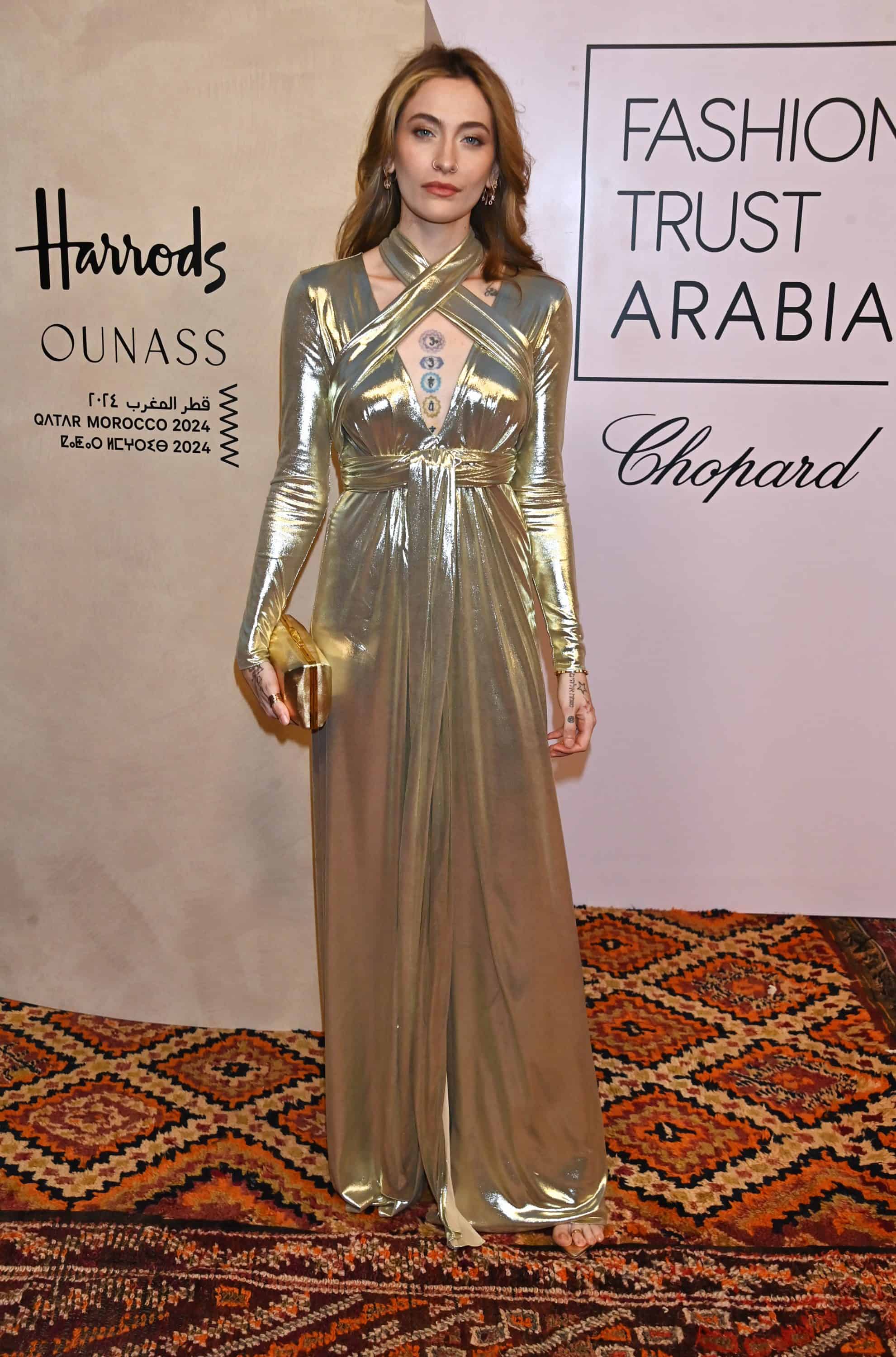
Ready-to-wear Winner: Nadine Mosallam, Nadine Mos
Nadine Mosallam of Nadine Mos is an Egyptian designer based between Cairo and London. She built her slow fashion brand from her North London studio with the intention to make it accessible to women of all shapes. Her collections are designed to follow and emphasise the natural curves “and imperfections of the body”. She told The Impression during a preview that her brand started during the pandemic when she took the time to play and understand the body. It was also during this time when she created an overlocked-seam dress for herself which spoke to her friends. From there she has nurtured a community of like-minded women given her ability to naturally make them feel like themselves in her clothes.
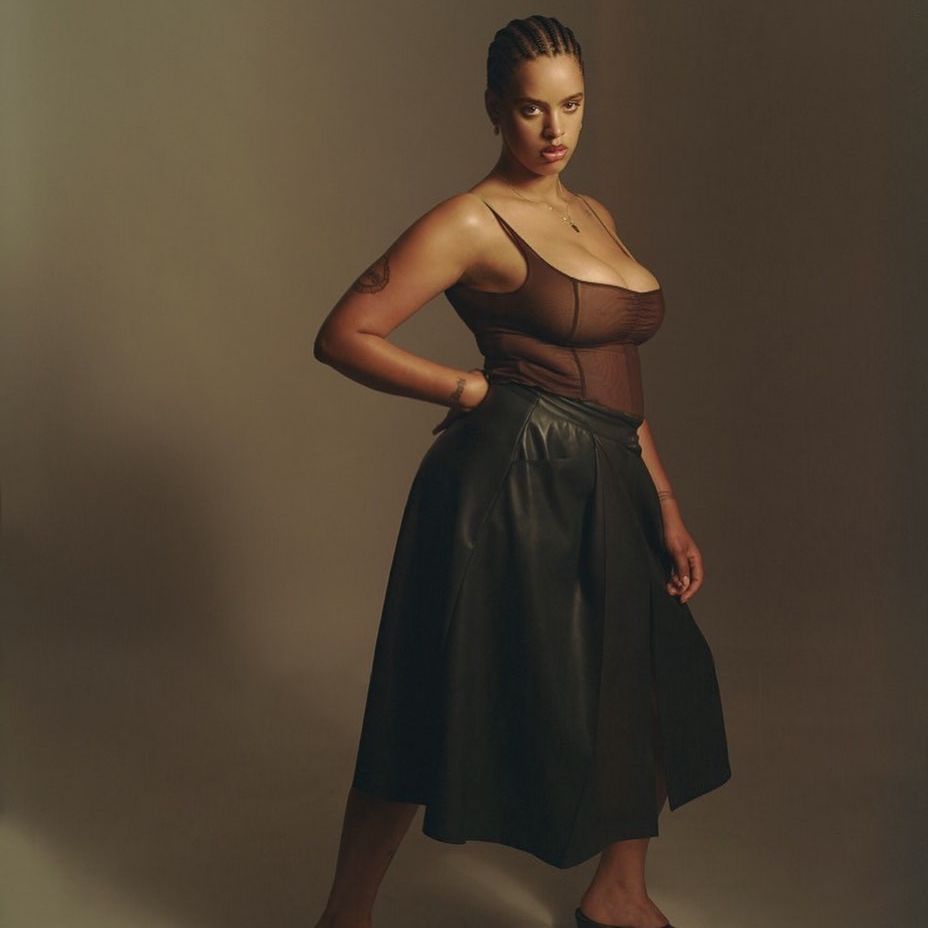
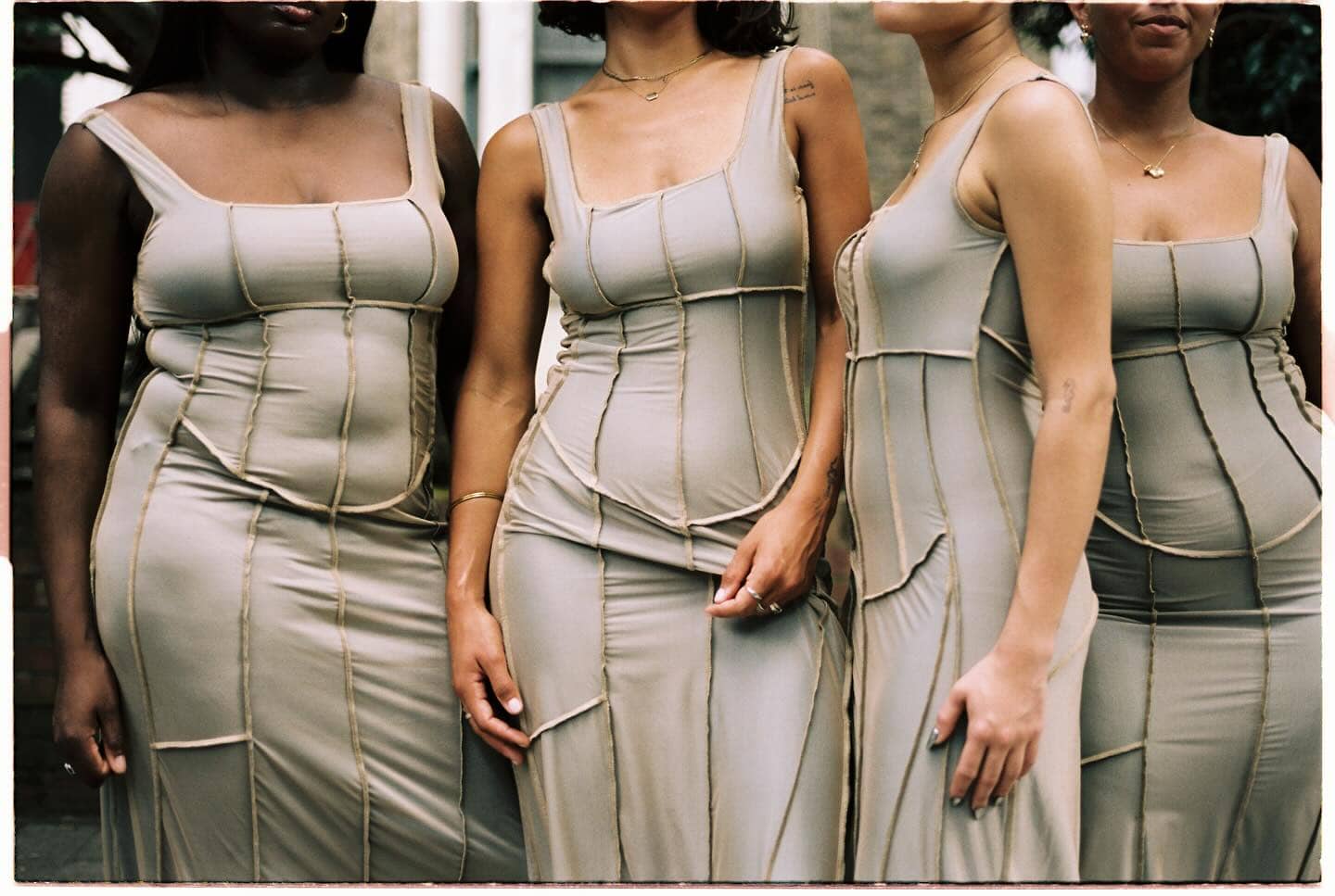
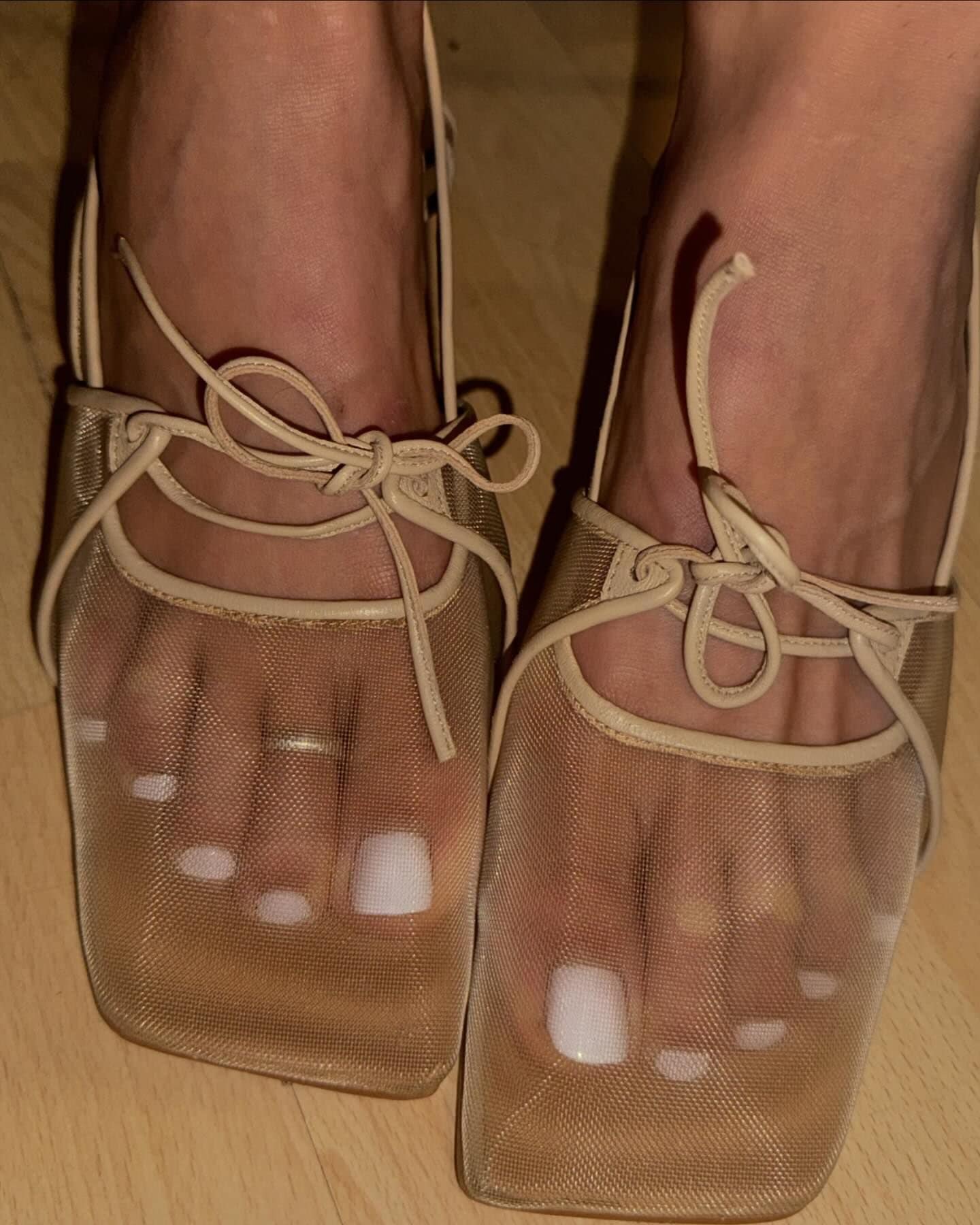
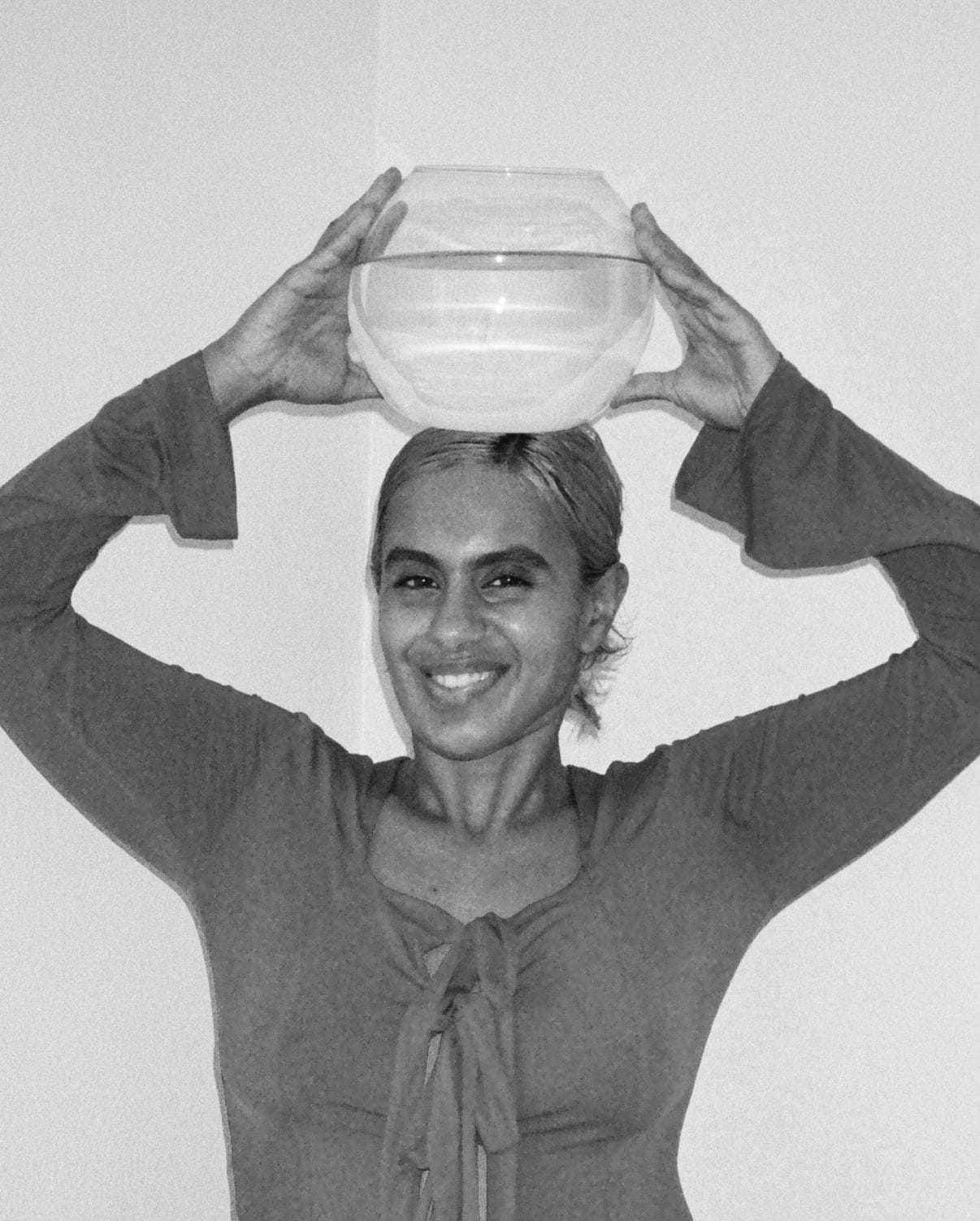
My story is about sustainability, simplicity and ease, and it plays on topics like nostalgia for a time when things used to be really well made. My colours are inspired by home – Egypt -as I sometimes feel as if I lose sense of where I am, and Egypt has made me feel grounded and given me a sense of direction in my life.
Nadine Mosallam, founder and designer, Nadine Mos
Evening wear winner: Yasmin Mansour
Yasmin Mansour’s 10-year-old label was founded in Qatar in 2014. Creating a signature visual concept which takes from the culinary mille-feuille layering technique. Her decade-long experience is evident in the high-level of expertise displayed in her sculptural constructions. Reflecting the unique style of couture embedded with the expressive craftsmanship from her region. The brands signature ‘Cycas Bag’ in red was worn throughout the awards ceremony by Fashion Trust Arabia co-chair HE Sheikha Al Mayassa bint Hamad bin Khalifa Al Thani further amplifying the brand on a global stage.
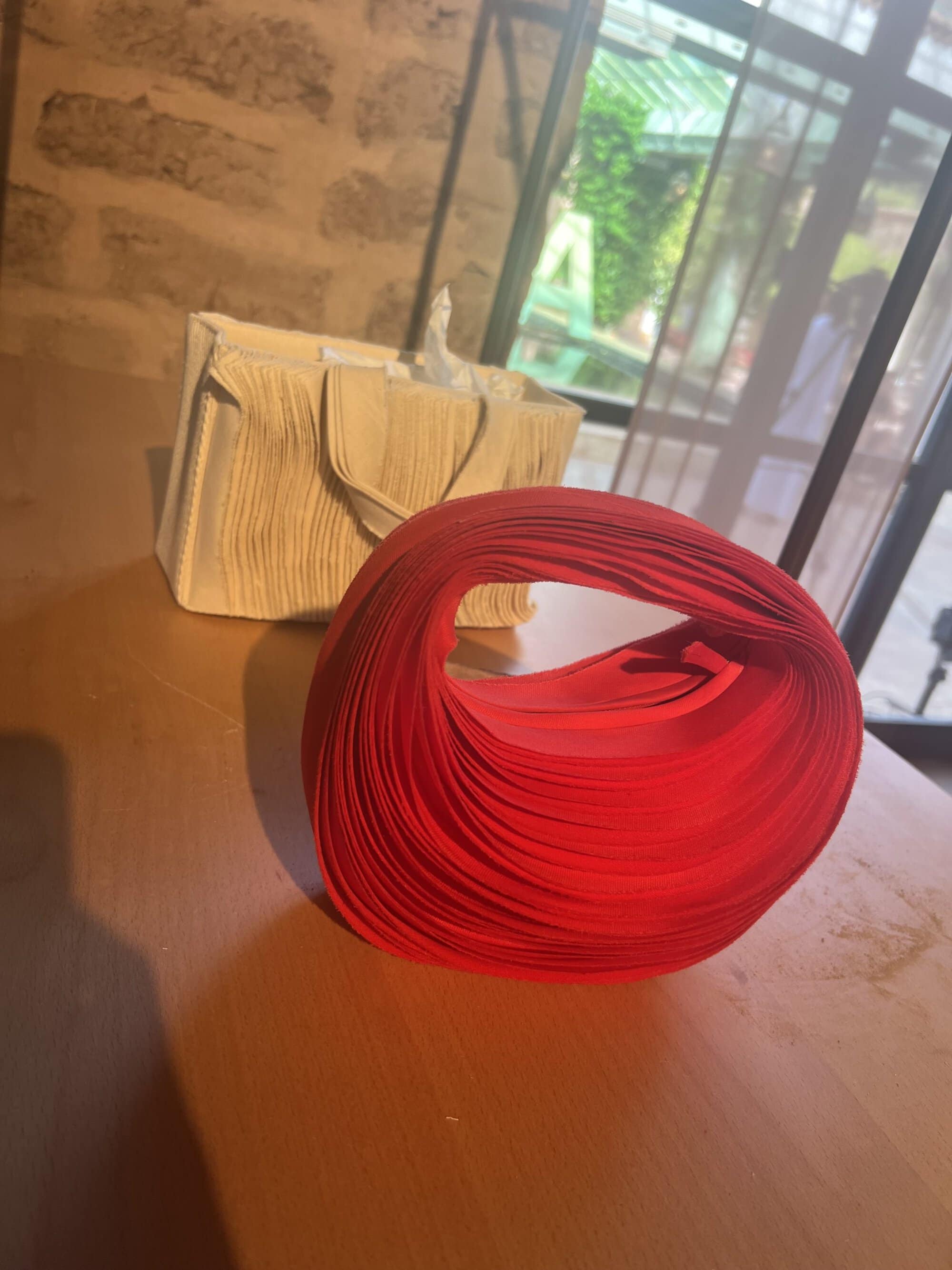
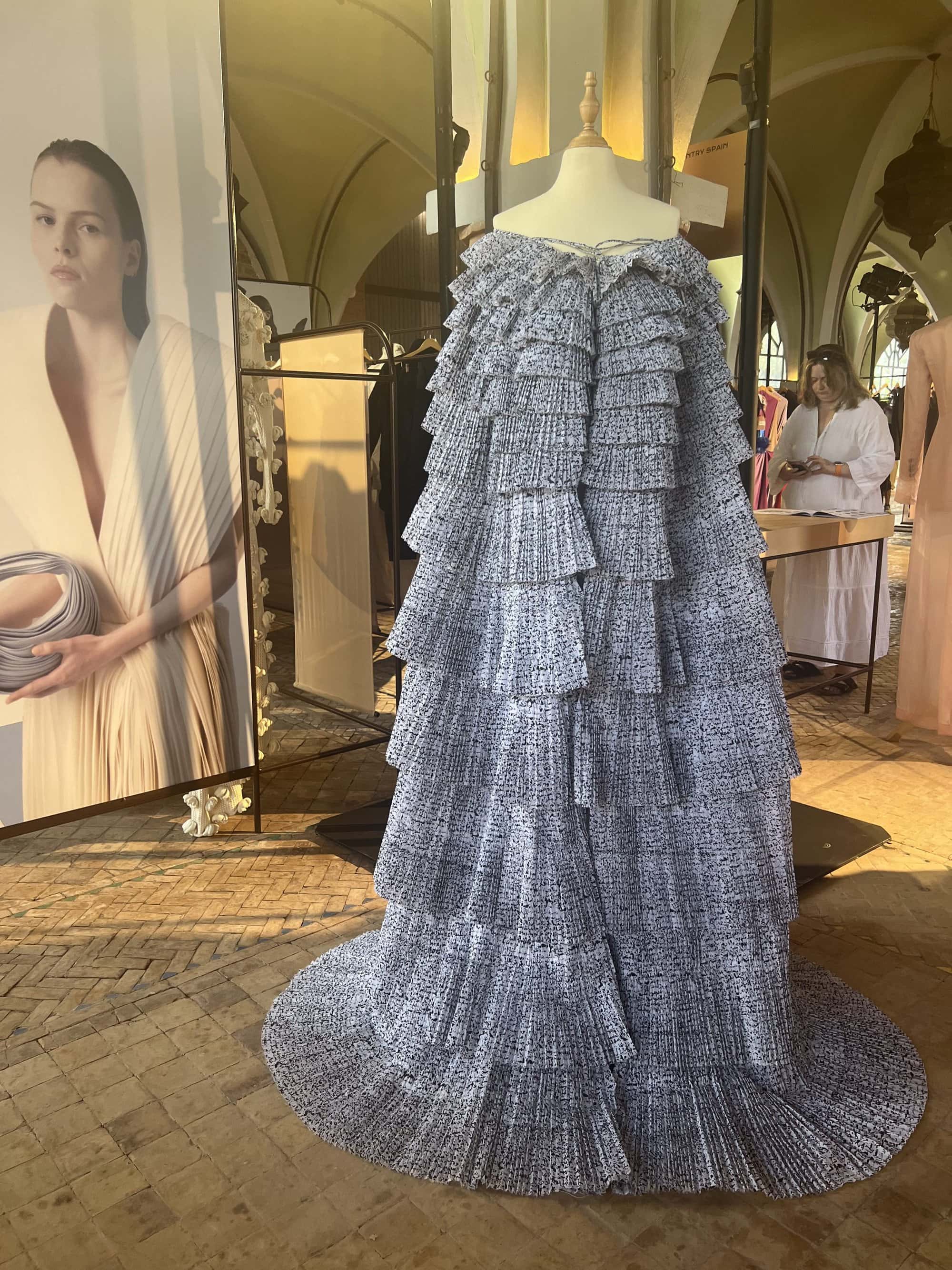
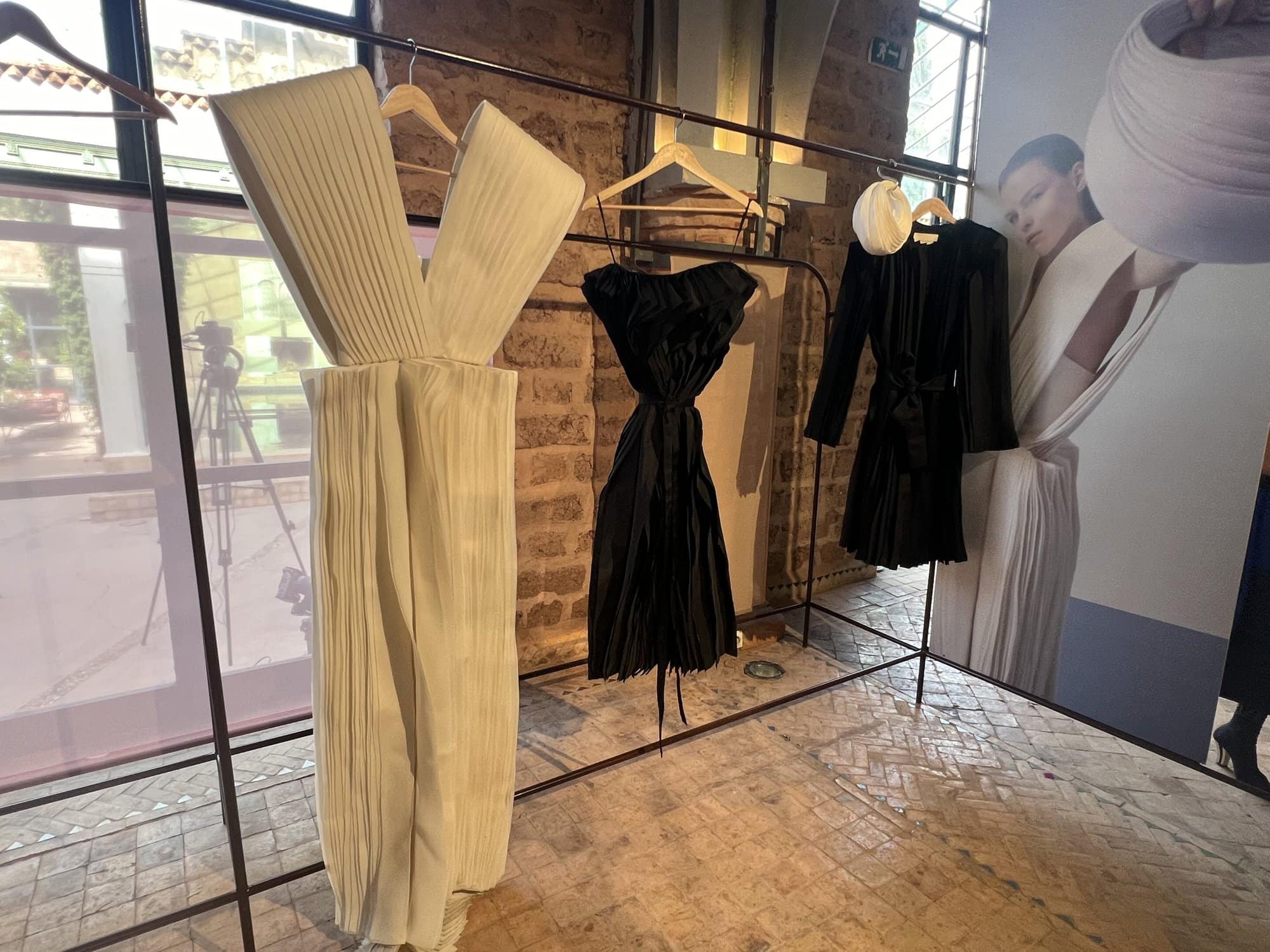
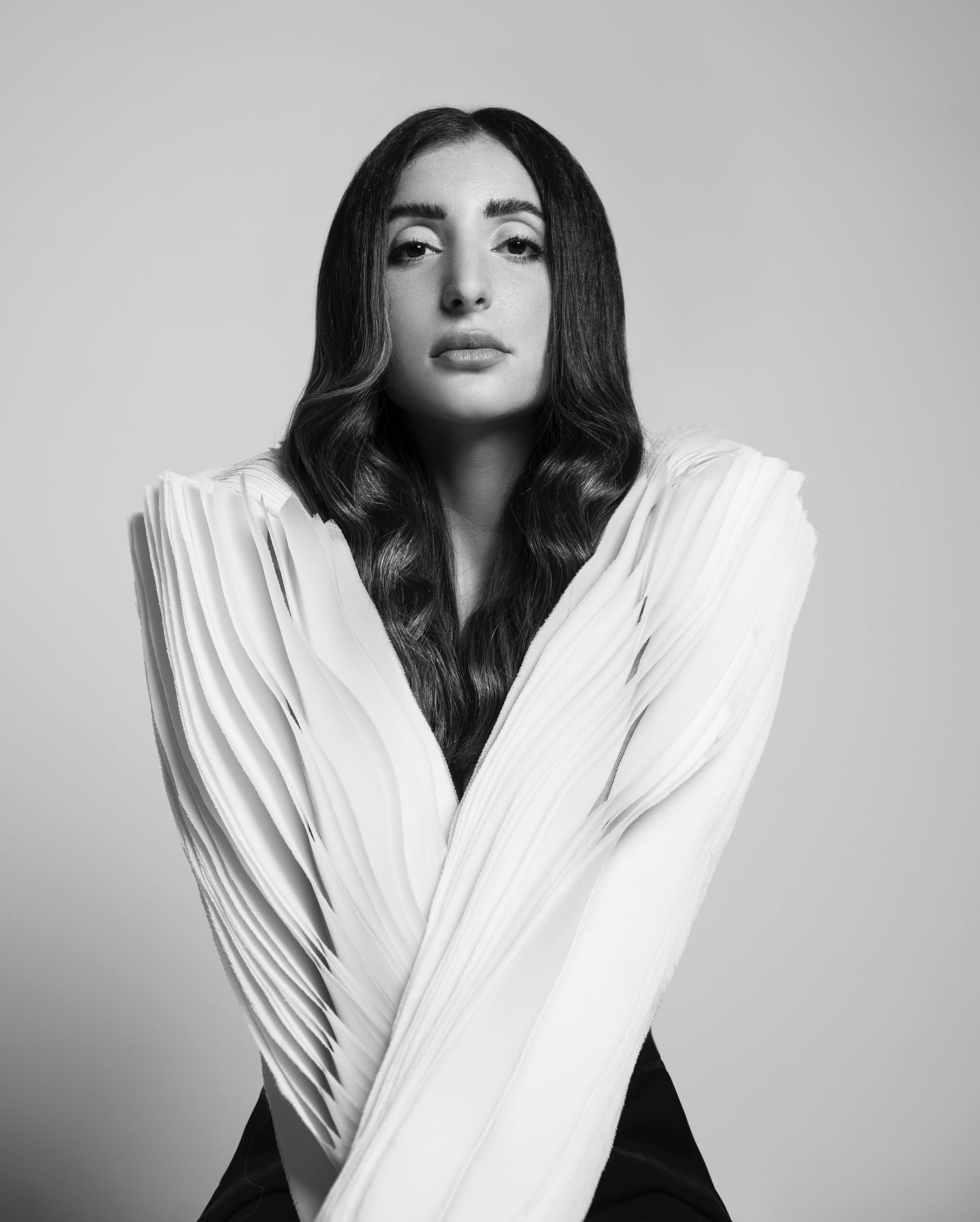
“[The mille-feuille technique] has become a major component of my brand, each layer is carefully crafted using high quality materials. These pieces are a true representation of the brands core values of authenticity and innovation with the focus of blending ethical and high-quality craftsmanship with unique and original ideas.
Yasmin Mansour, founder and creative director, Yasmin Mansour
Accessories winner: Reem Hamed, RAMLA
Reem Hamed of RAMLA, also from Egypt, empowers artisans from her community and celebrates craftsmanship from her home country. As with her prize peers Hamed’s work centres around ‘preserving heritage’ and telling stories which are not often heard. Her collection is 100% Egyptian-made and sells across the middle-east from Kuwait to Dubai. Her work has already been recognised for its contribution to Egypt’s design narrative with her ‘Grand Egyptian’ collection now sold at the Grand Egyptian museum.
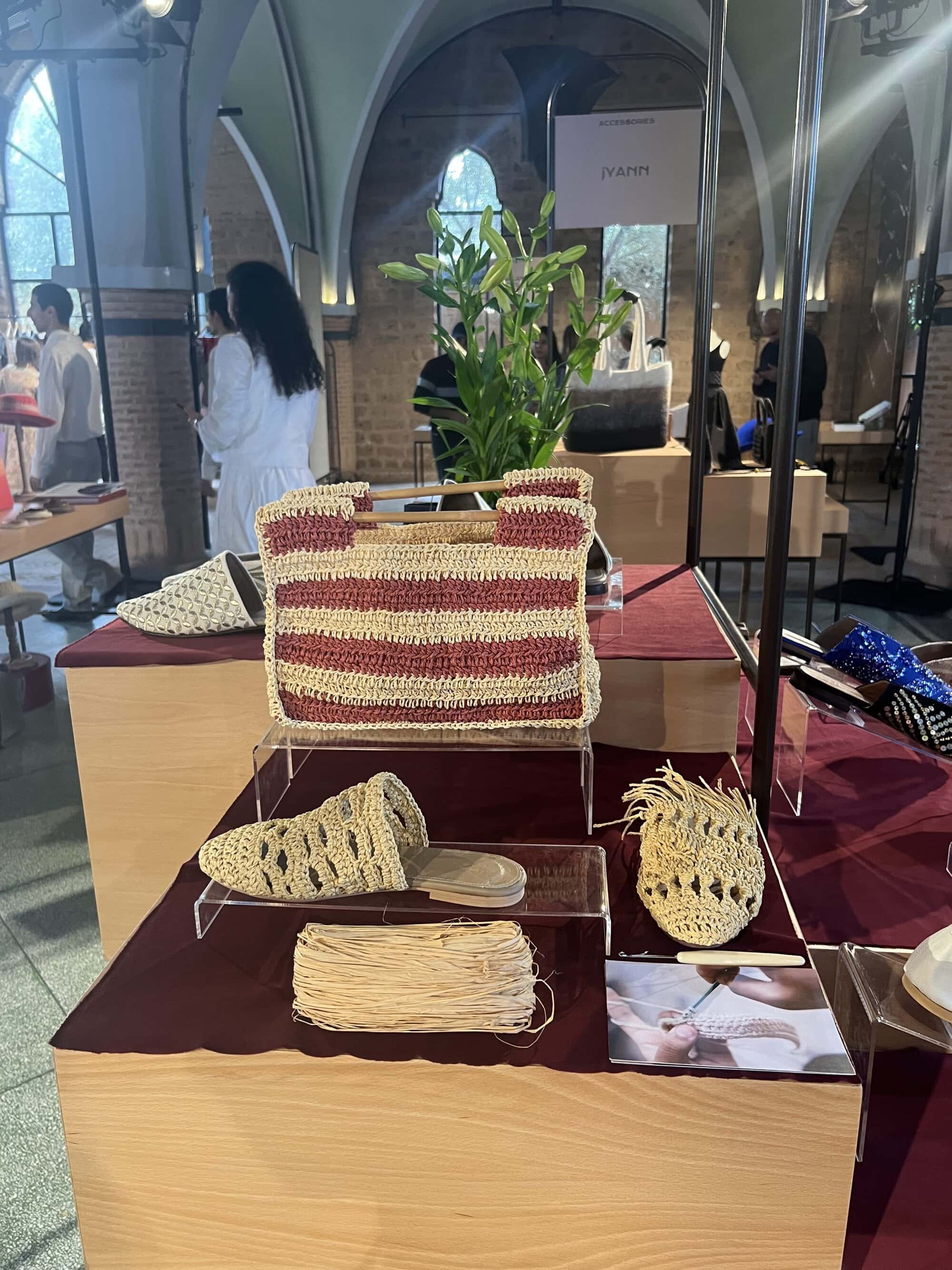
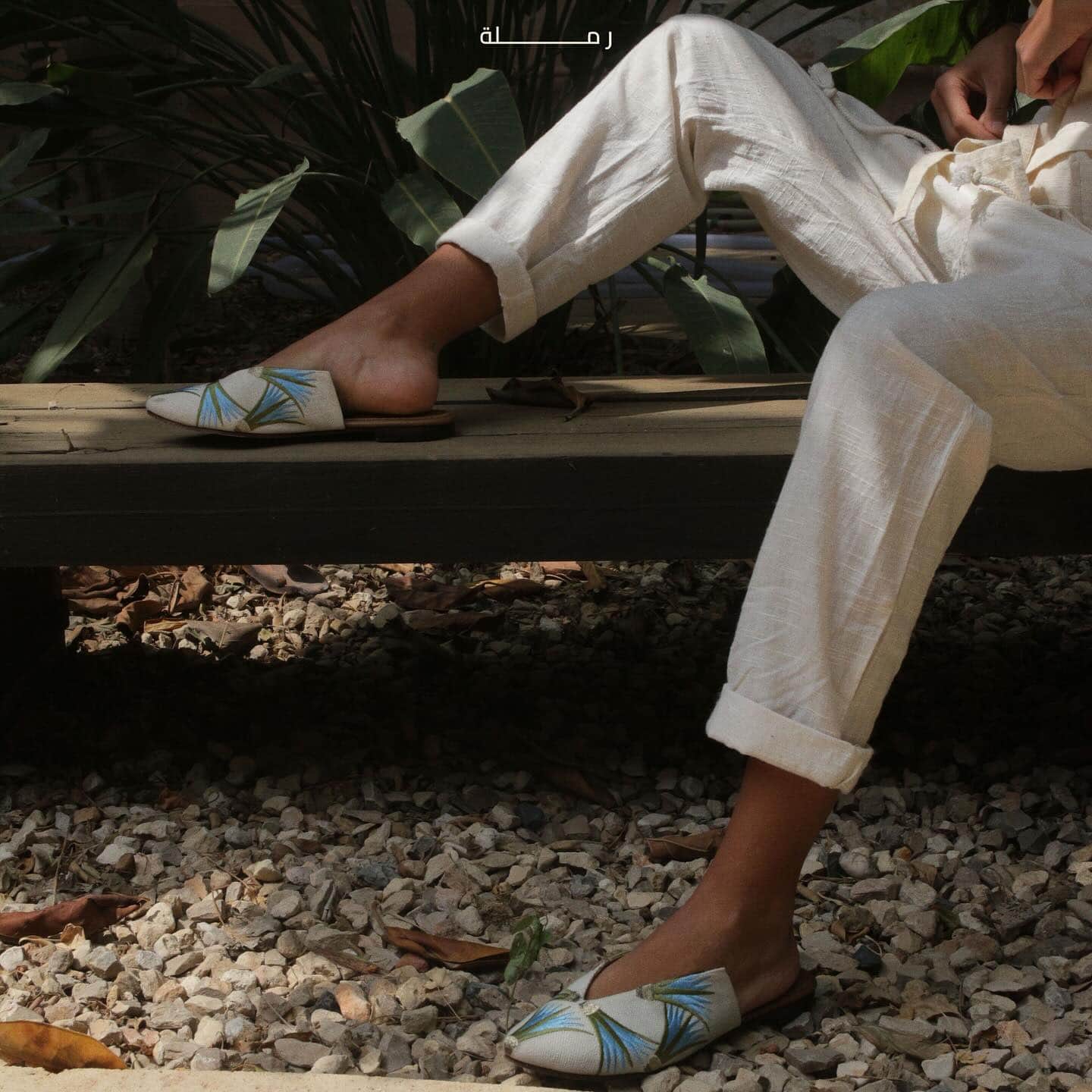
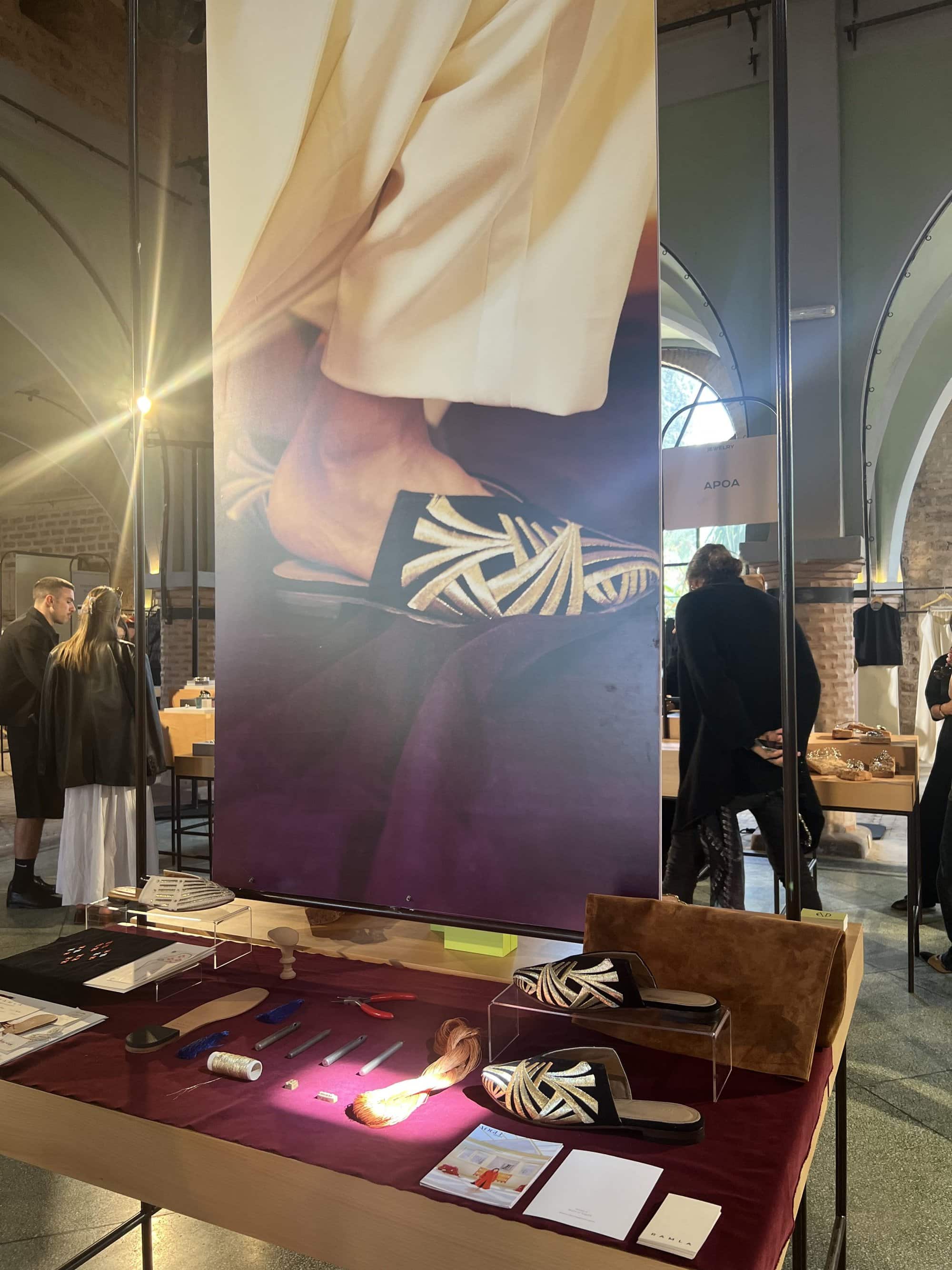
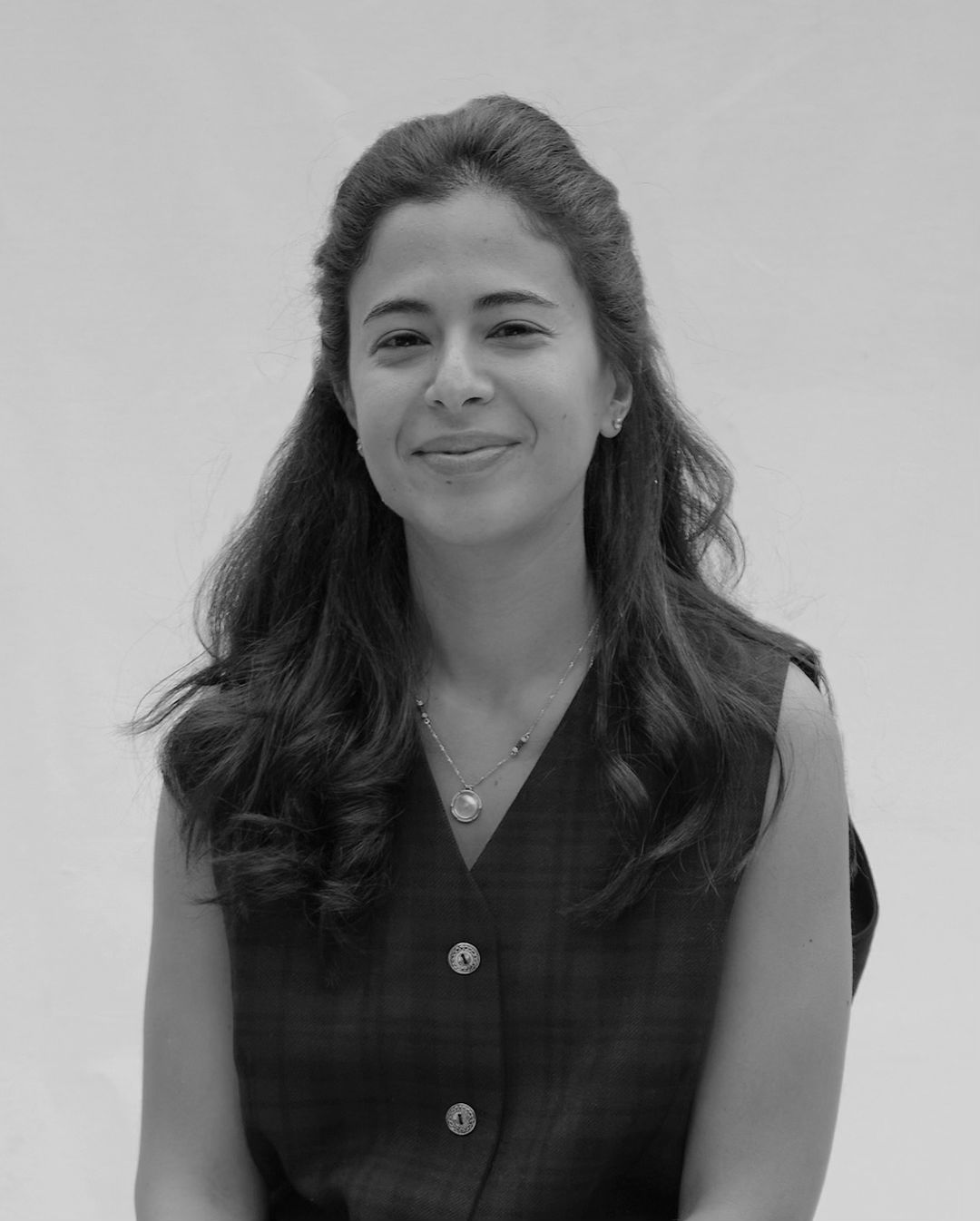
Everything [in my collection] is done by hand, by Egyptian women, so we are motivating the social reasonability part of our brand.
Reem Hamed, founder RAMLA
Jewellery winner: Noura Abdulaziz Al Saud, Sara Naif Al Saud and Mashael Khalid Al Saud, APOA (A Piece of Art)
Founded in 2023, Noura Abdulaziz Al Saud, Sara Naif Al Saud and Mashael Khalid Al Saud’s brand APOA (A Piece of Art) has come to represent contemporary Saudi Arabia. Having truly mastered the concept of ‘Think Globally, act locally’ their jewellery collections are designed between Barcelona and Riyadh, while manufacturing takes place in Italy. Their success lies in the ability to create “small wearable sculptures” infused with “Strong Saudi DNA” according to the designers. Pearls feature throughout their collections as a signature material in both polished and organic forms, in tribute to the ‘longstanding heritage of pearl diving’ allowing APOA to, in their words, “Put our Arab roots on full display”.
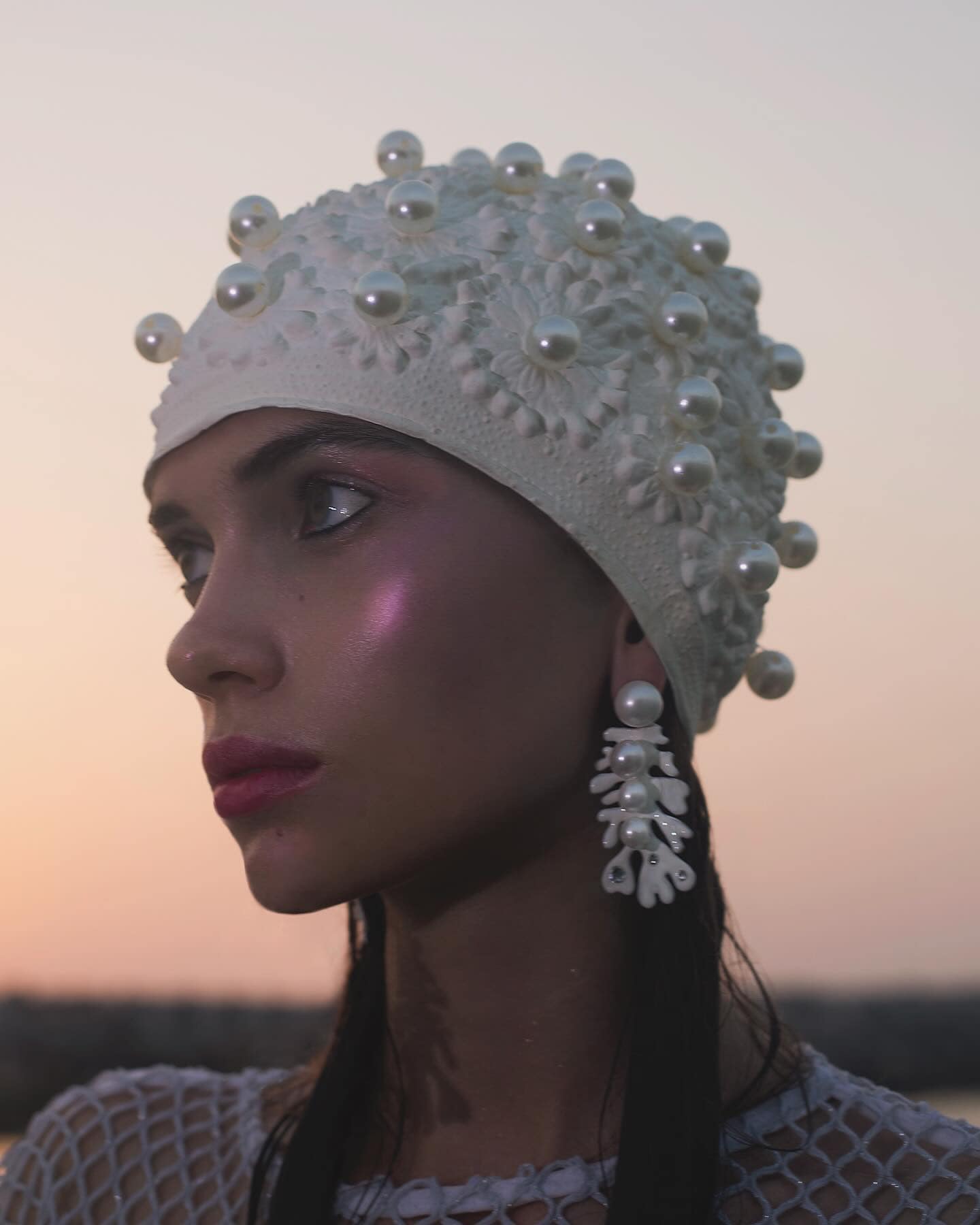
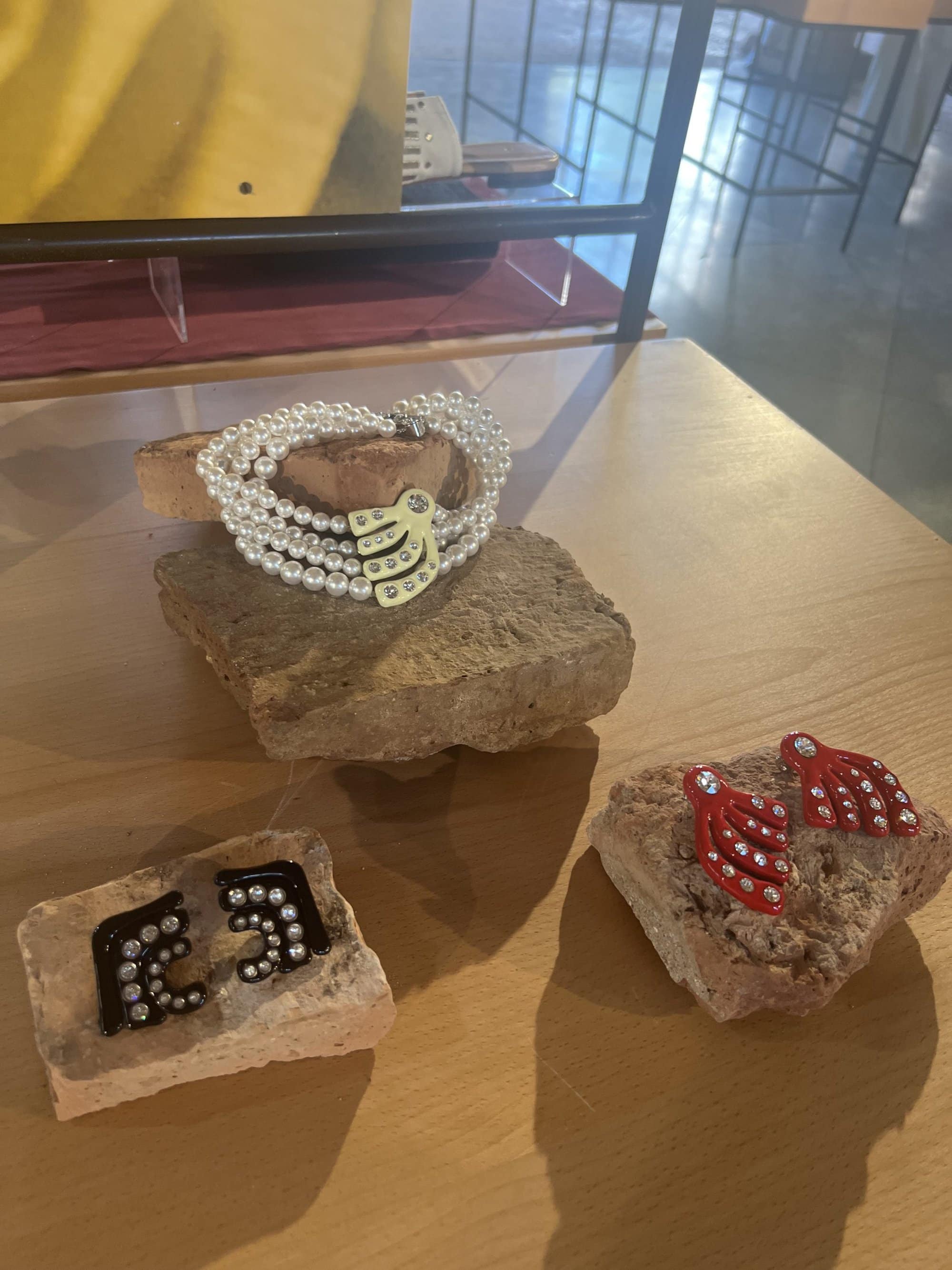
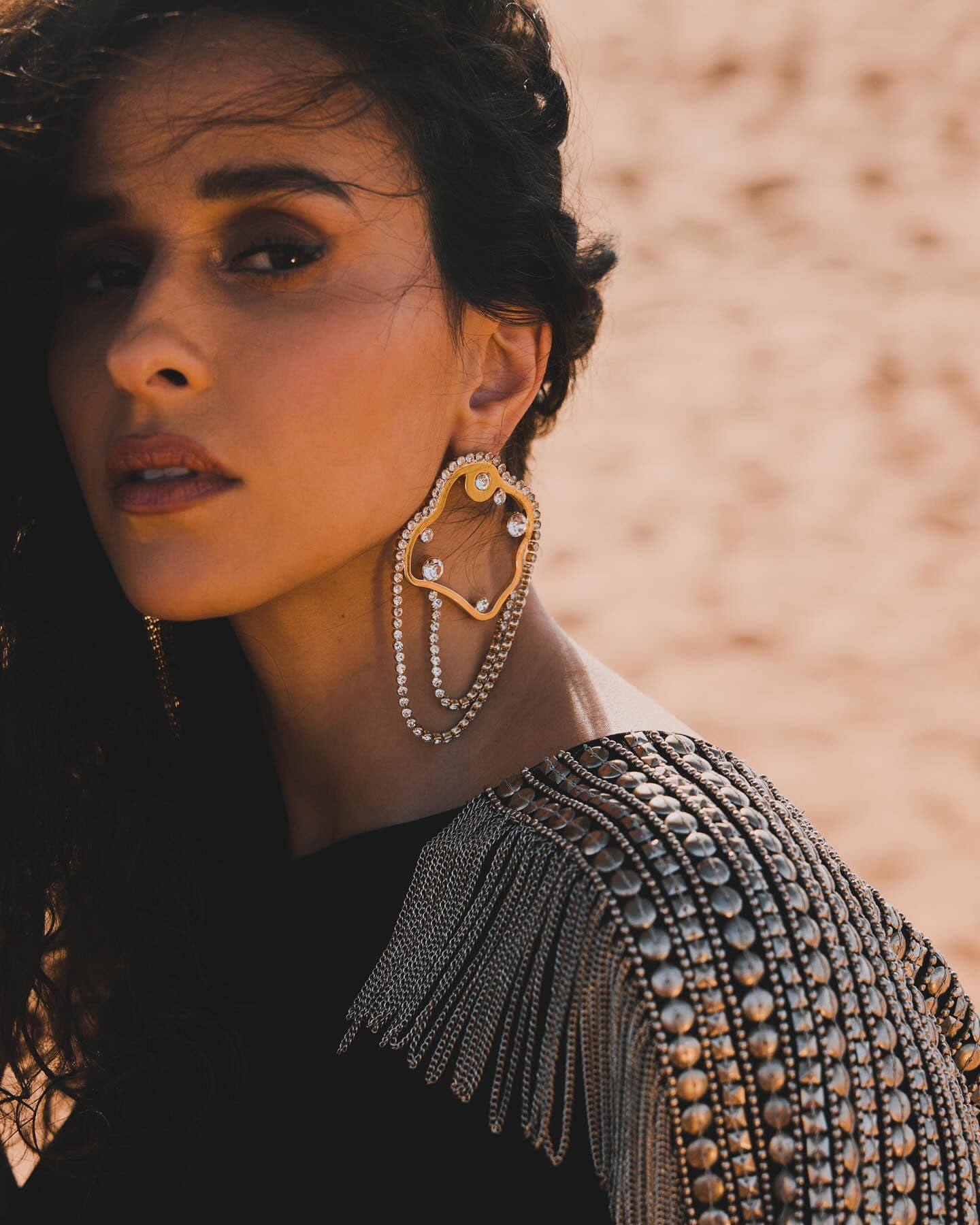
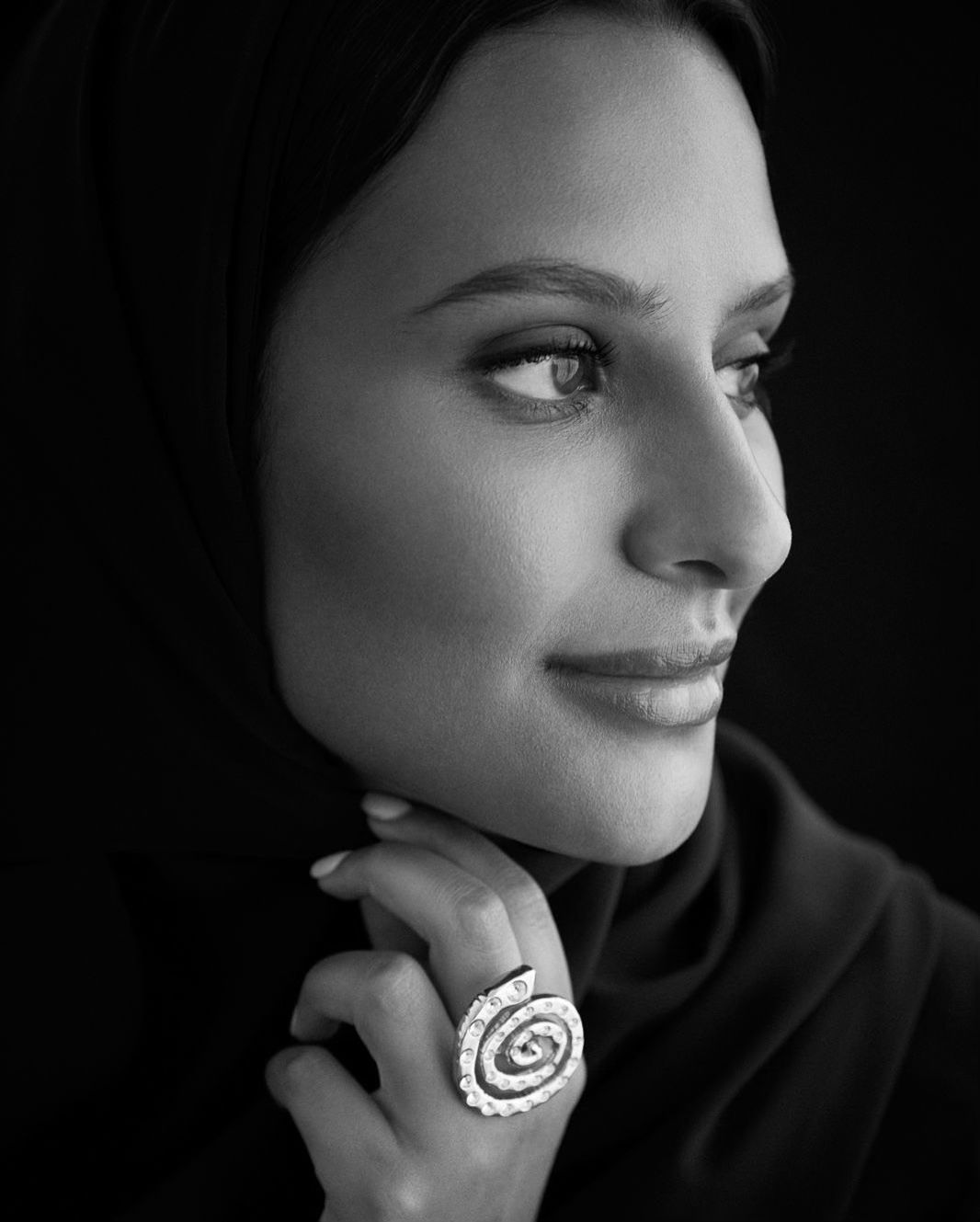
In a post covid world, what does jewellery design look like for the fashion enthusiast? Women taking on different roles, be it mother, friend, and/or working woman are returning to a normal we once fondly remember. People are once again dressing up and bulking up their wardrobes with marvellous creations – we want APOA to be part of that new dialogue that shapes the way in which people shop and dress themselves.”
Noura Abdulaziz Al Saud, Sara Naif Al Saud and Mashael Khalid Al Saud, co-founders and designers APOA
Franca Sozzani Debut Talent winner: Sylwia Nazzal, Nazzal Studio
Sylwia Nazzal of Nazzal Studio, is a Palestinian designer whose brand stands as more than a creative endeavour, Nazzal hopes to use her platform to create a brand with a message that people should be listening to. One of her most impactful pieces, showcased during the press and judges preview, was in honour of an Arabic tradition. Working with refugee women from Palestine it featured 10,000 hand-sewn coins in a two-piece hoodie and skirt look weighing in at 72 kgs, Nazzal compared it to spiritual armour in the fight to raise awareness of the conflict in her home country. Nazzal Studio’s story is deeply rooted in its founders heritage, and activist mentality. In a candid moment speaking to The Impression Nazzal spoke to the fact that she was in effect a young designer with nothing to lose at this stage of her brand, which inspired her to speak up and speak out in both overt and covert ways with her collection.
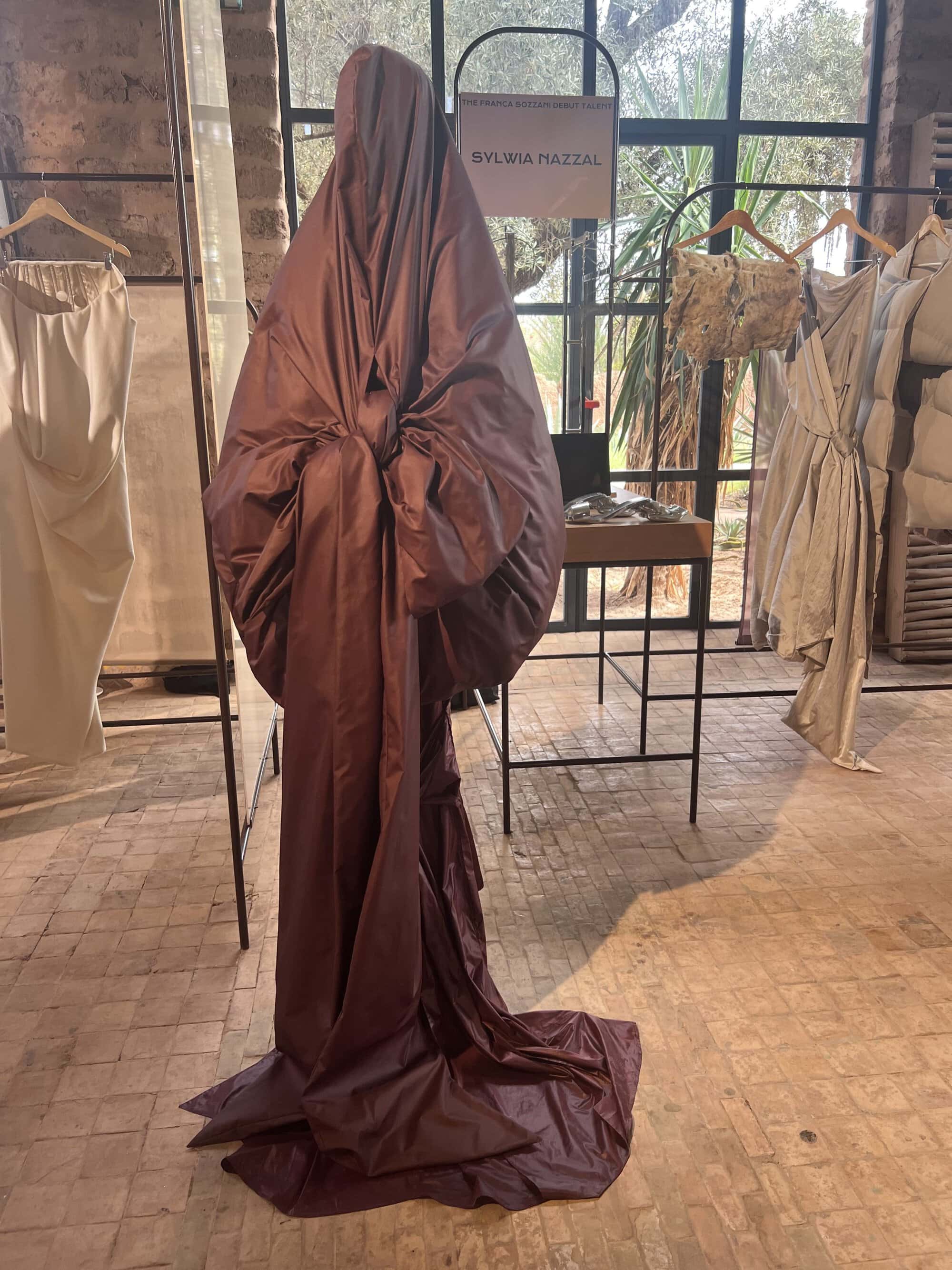
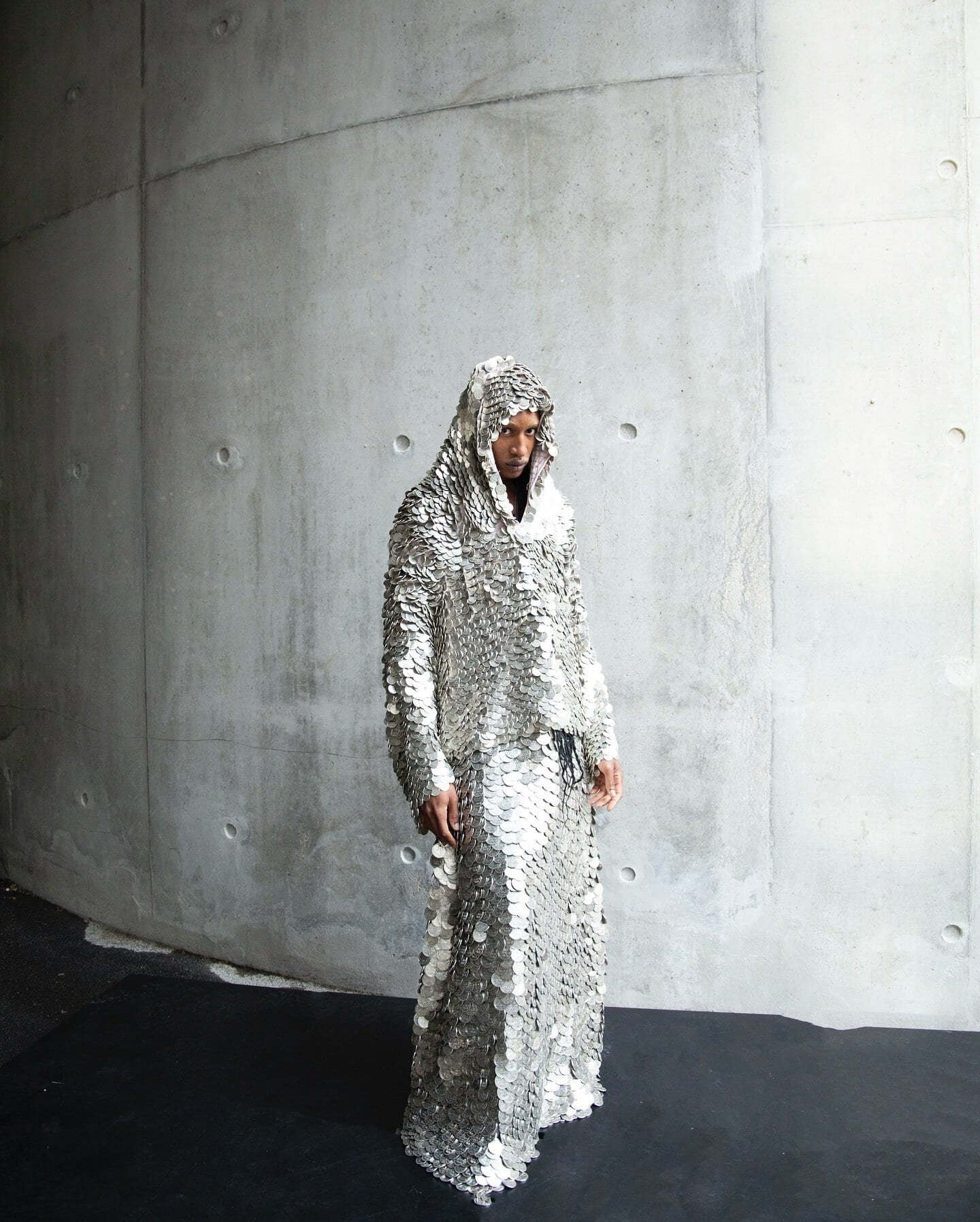
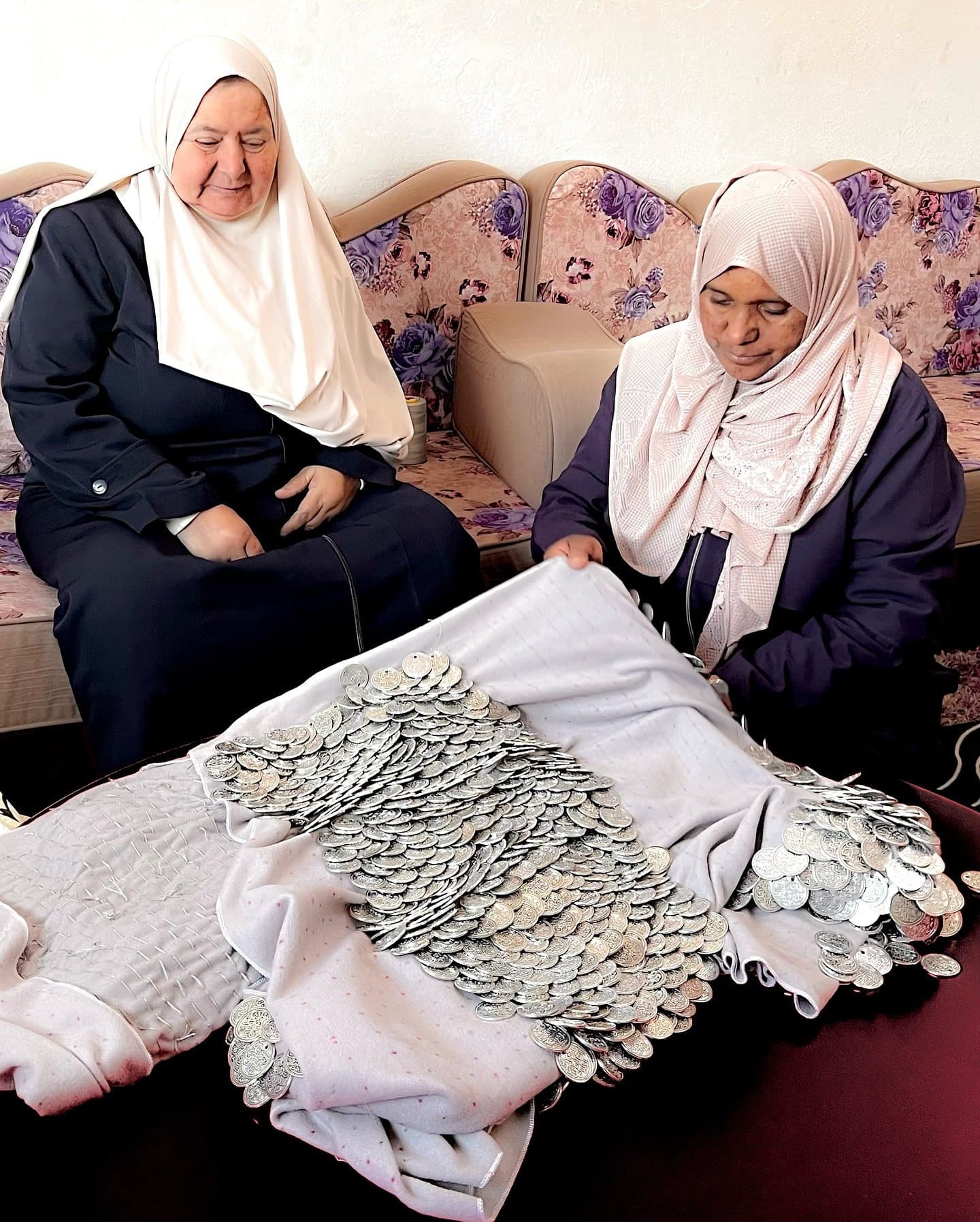

My brand focusses on Palestinian resistance and ethical fashion….and I would love for my pieces to be on a runway and exhibited in a museum.
Sylwia Nazzal , founder and creative director Nazzal Studio
Fashion Tech winner: Batoul al-Rashdan, Studio Bor
Batoul al-Rashdan of Studio Bor illustrated the way fashion, science, and technology could come together to go beyond the expected and set out a new frontier for fashion design. She transforms food waste (such as lettuce to colour her designs) into avant-garde “3D computational couture” according to the designer who has been 3D printing since 2015. Al-Rashdan has expressed that her innovative approach to fashion assists the co-existence of sustainability and science, while simultaneously honouring nature and tradition.
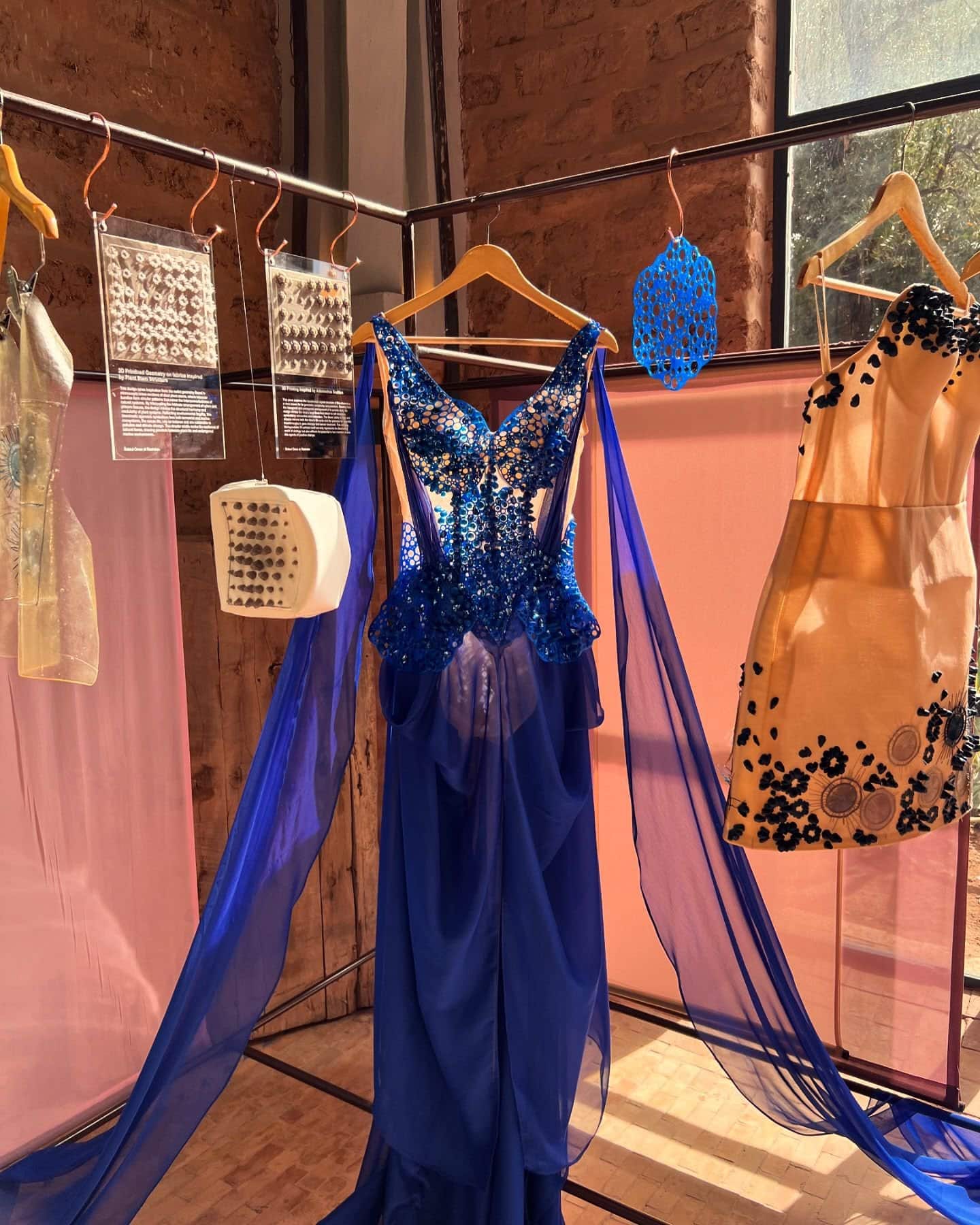
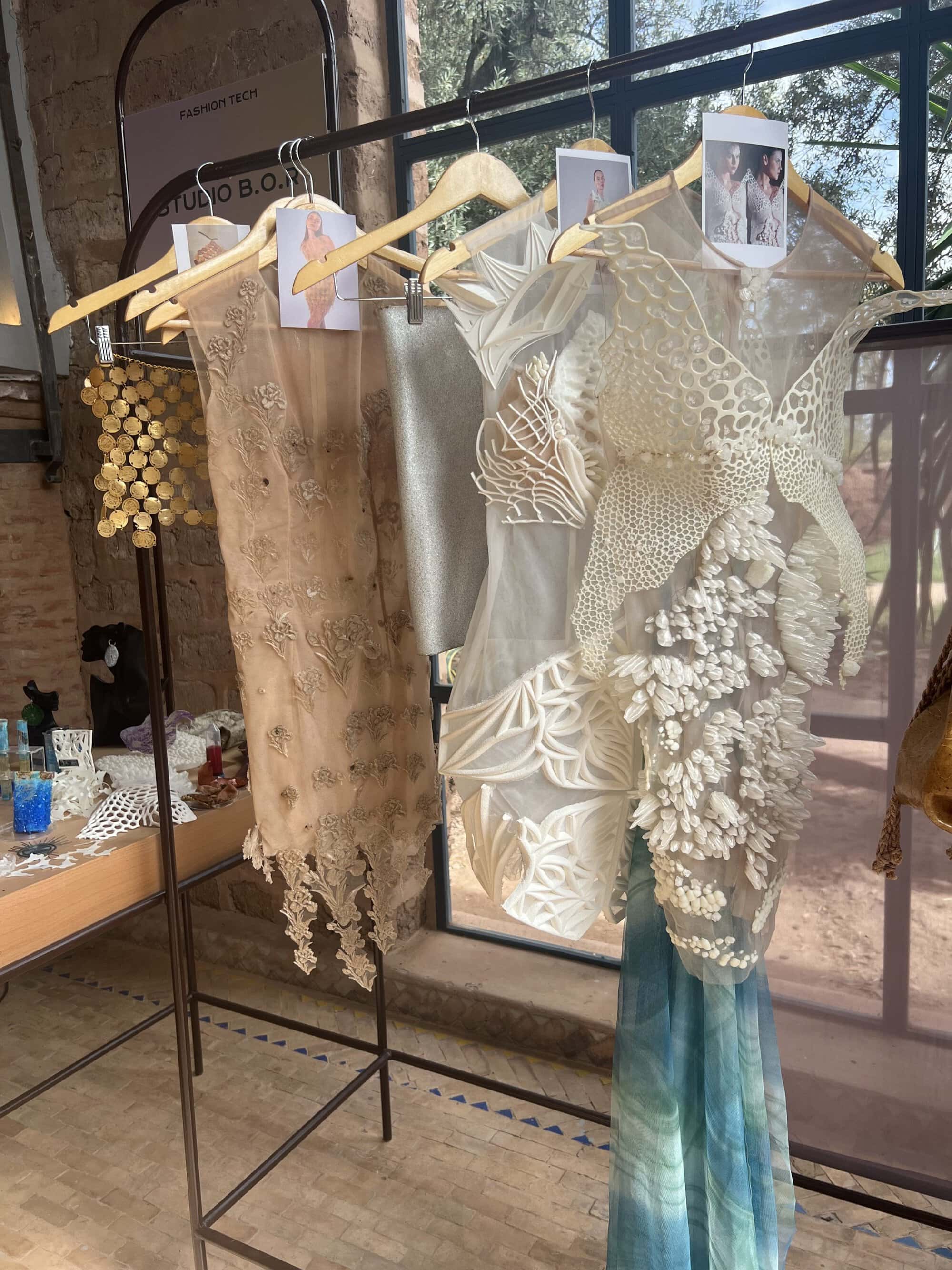
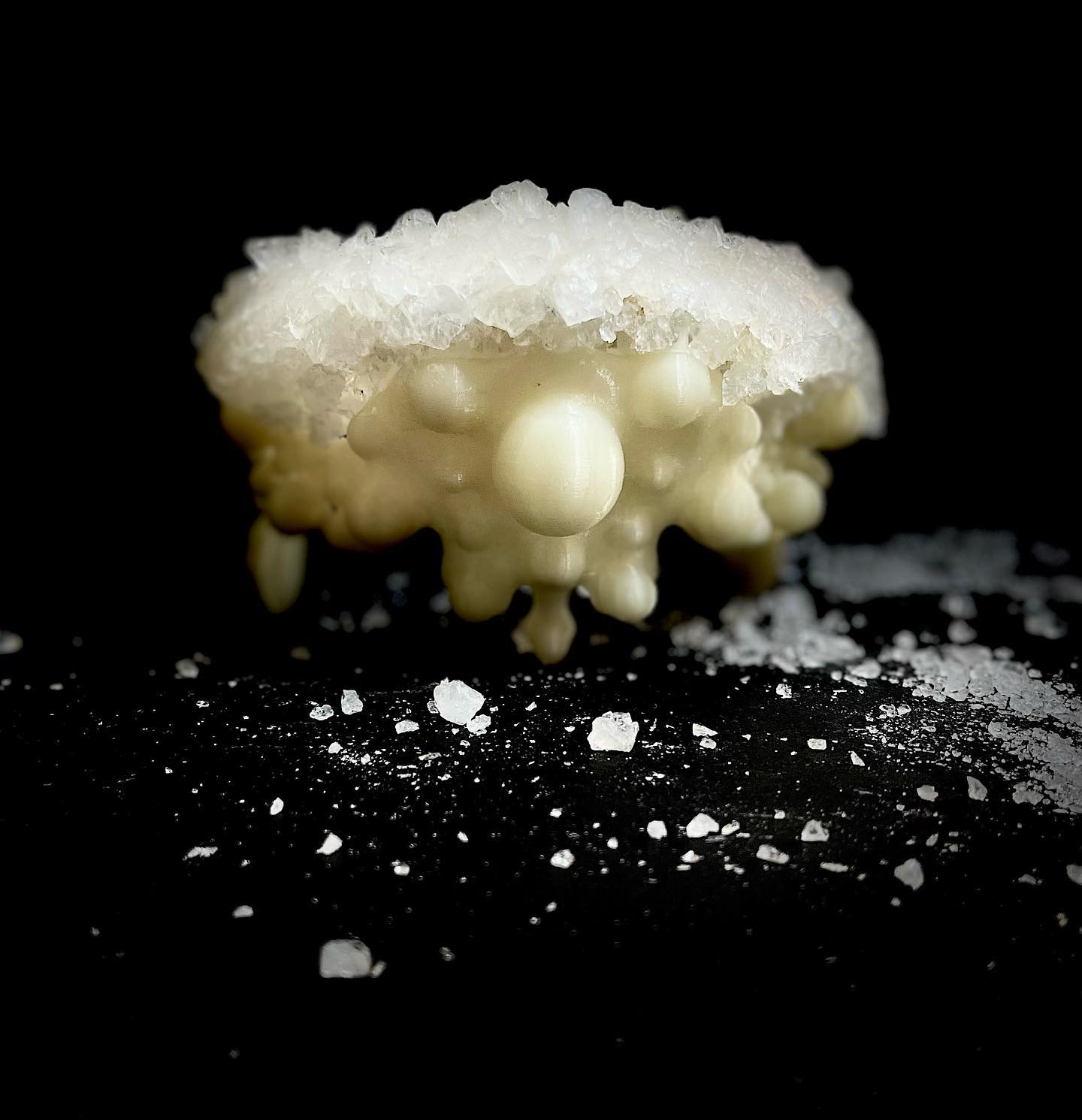
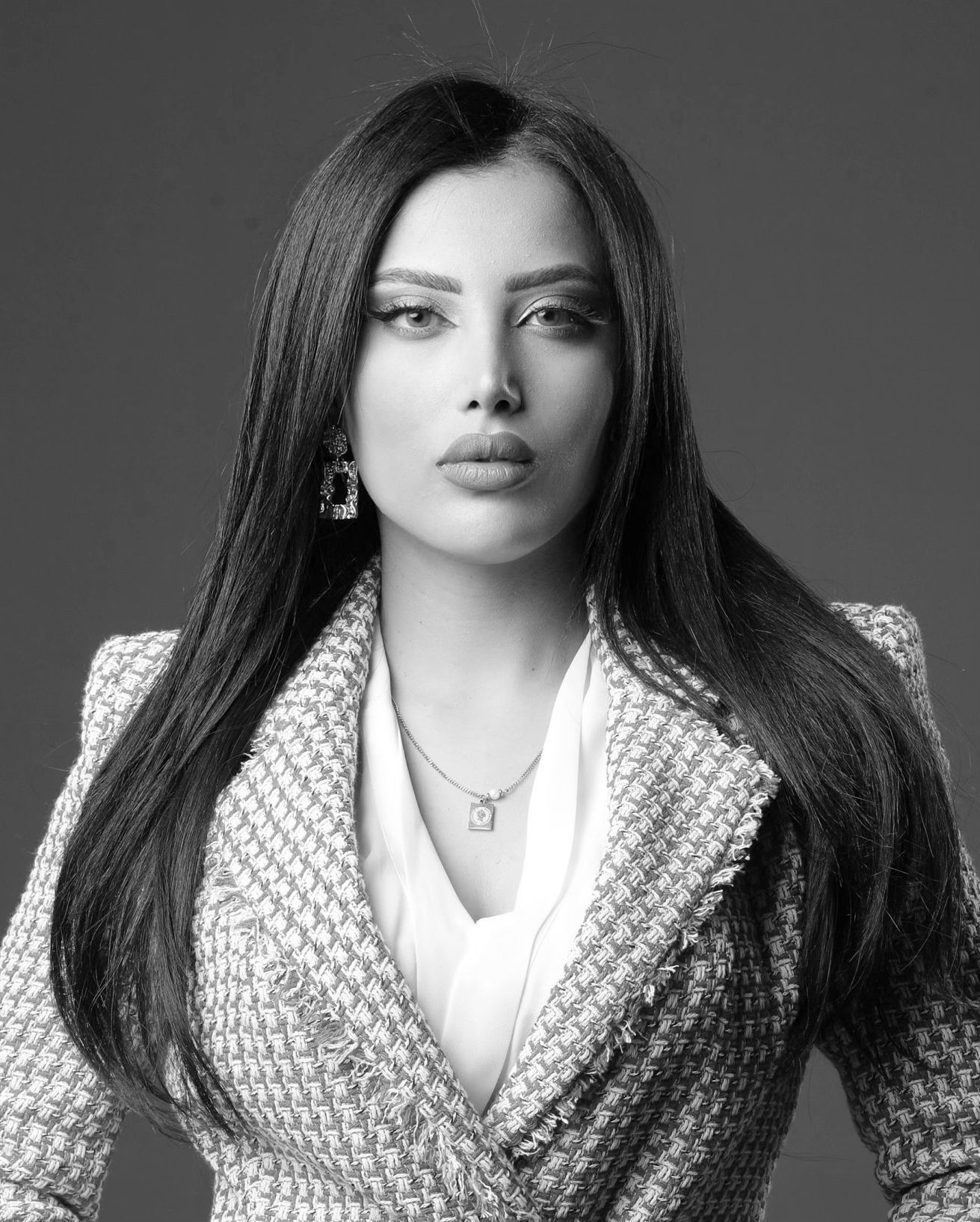
My collection was inspired by microscopic images of plant stems which change colour based on the wearers body temperature, and the looks were naturally coloured with tones extracted from cabbage.
Batoul al-Rashdan, founder and designer Studio Bor
Guest Country Spain winner: Xavi García and Franx de Cristal, Acromatyx
Guest country winners (India was revealed as the choice for 2025 during the awards ceremony) Xavi García and Franx de Cristal’s monochromatic brand has spent the last decade in the industry exploring volume and texture. Their most inspiring pieces during the press preview utilised memory fabric within tailoring to create suiting which could stand on its own, and trompe l’oeil padded ‘metal’ vests. Their Modern Poetry collection played with the idea of deconstruction by reversing silhouettes so they were worn inside-out, and sleeves on blazers were cut-away to reveal raw seams and shoulder pads within sleeve-heads. Styled on models across genders they propose for their clothing to be worn by ‘individuals who identify with inclusive fashion, without labels’.
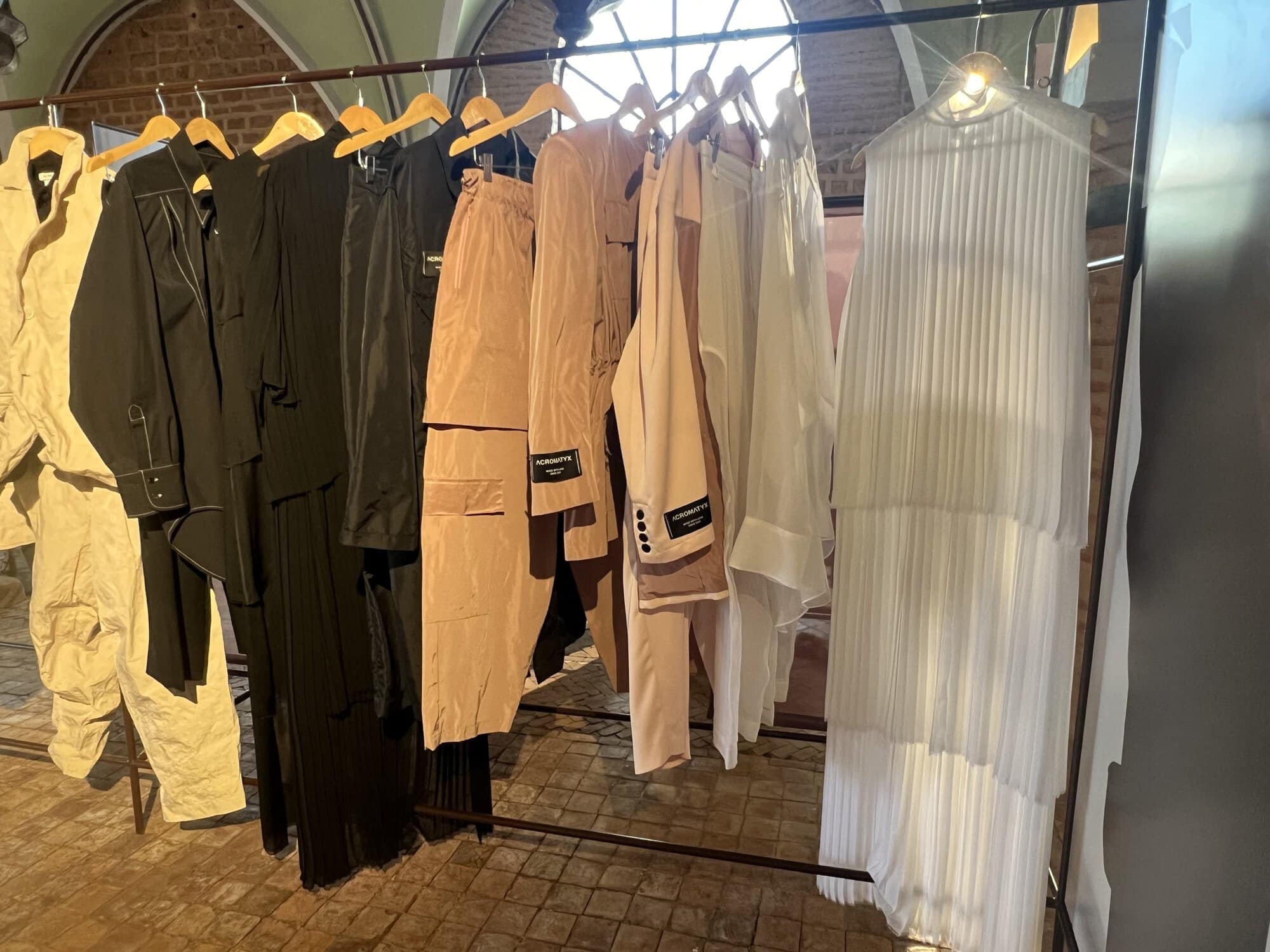
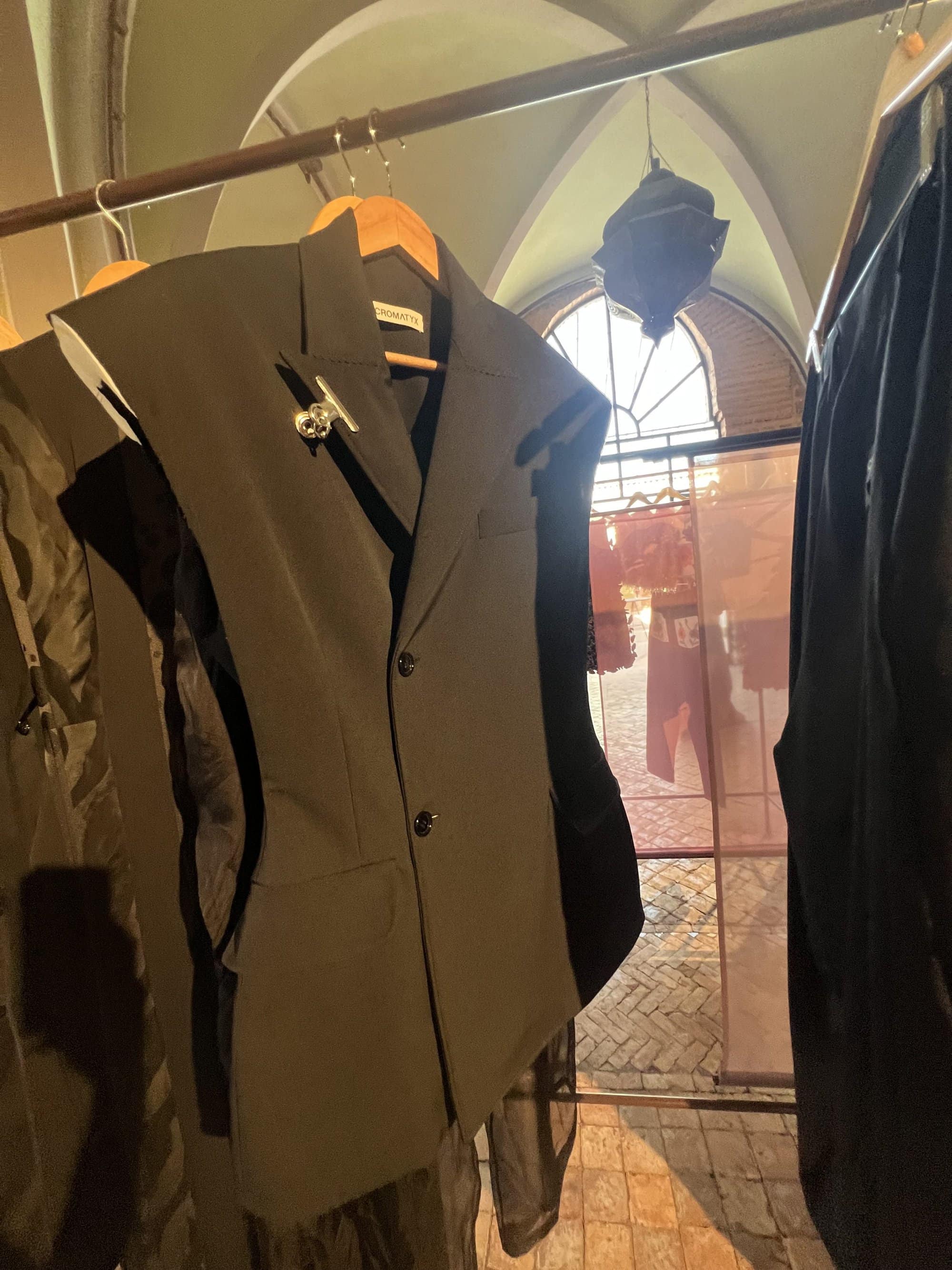
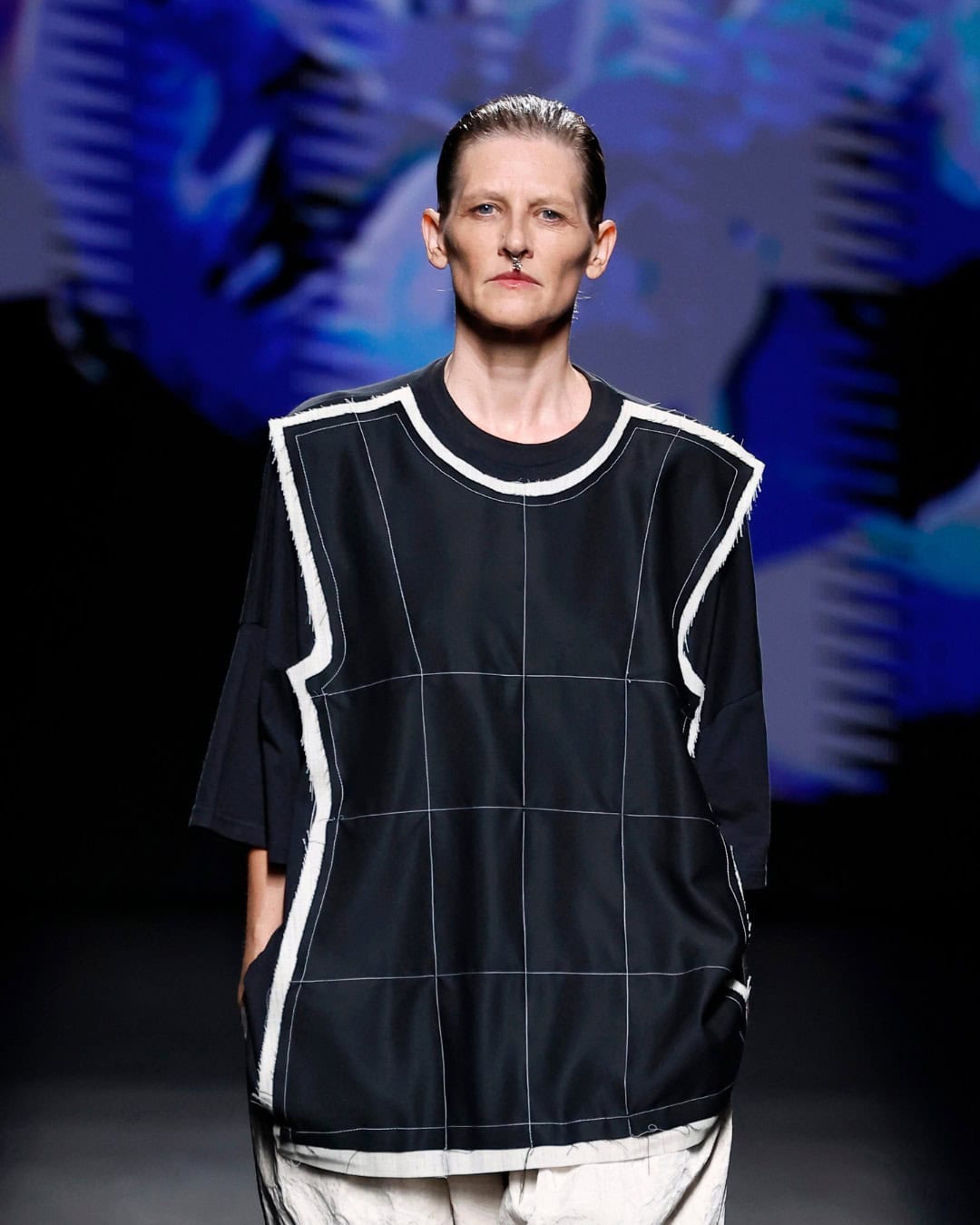
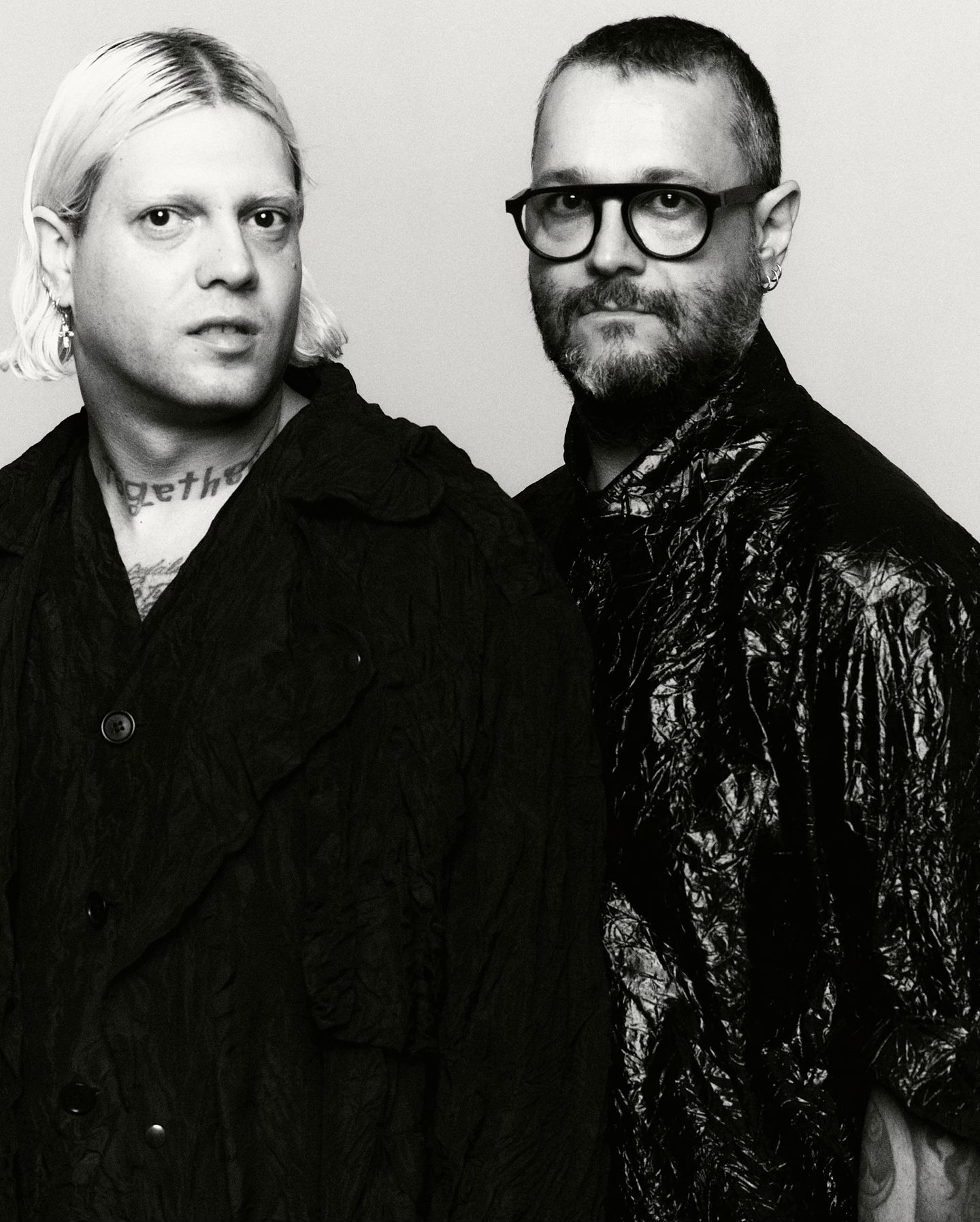
We are passionate about oversized garments and love exploring volume and textures with different materials.
Xavi García and Franx de Cristal , founders and creative directors, Acromatyx
